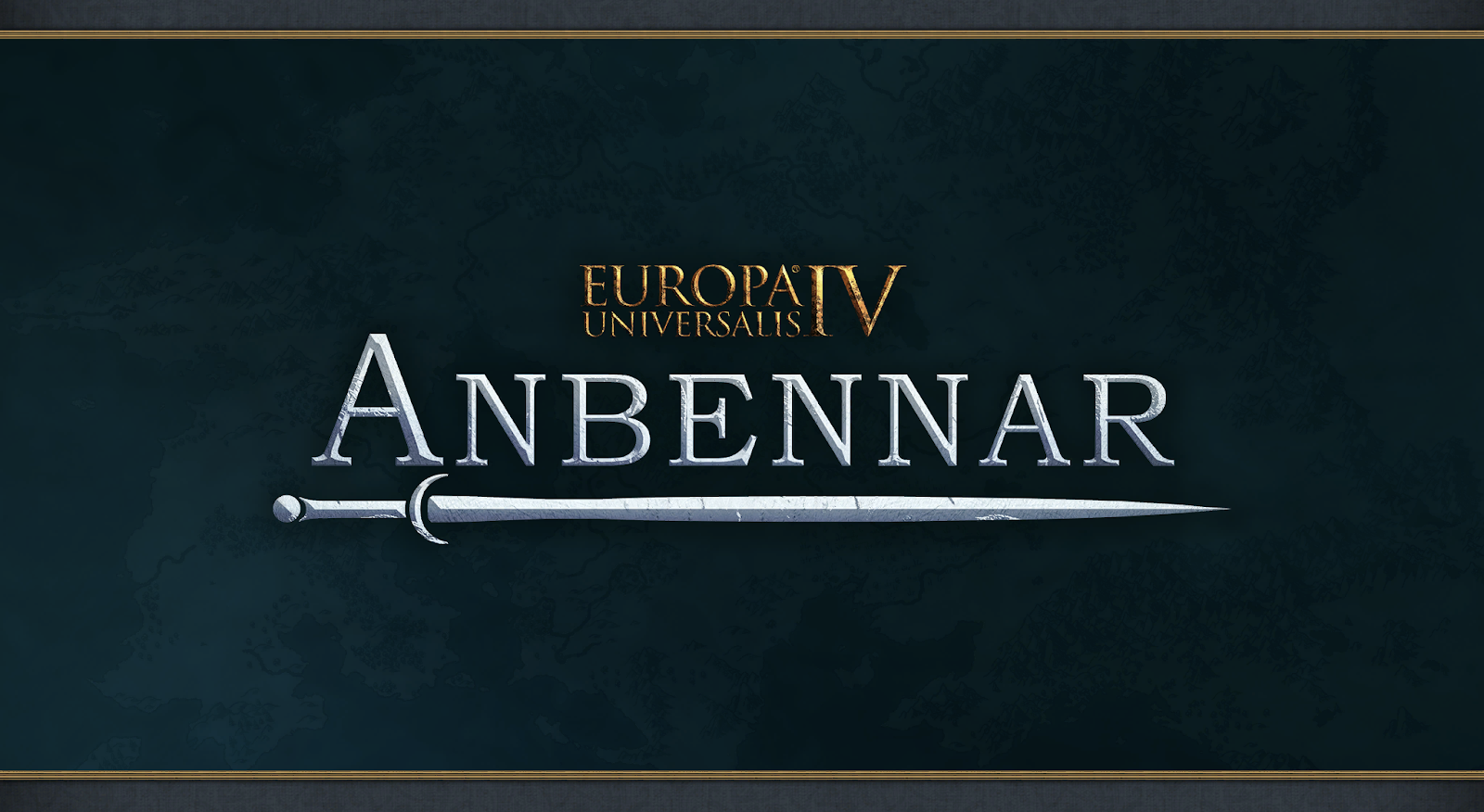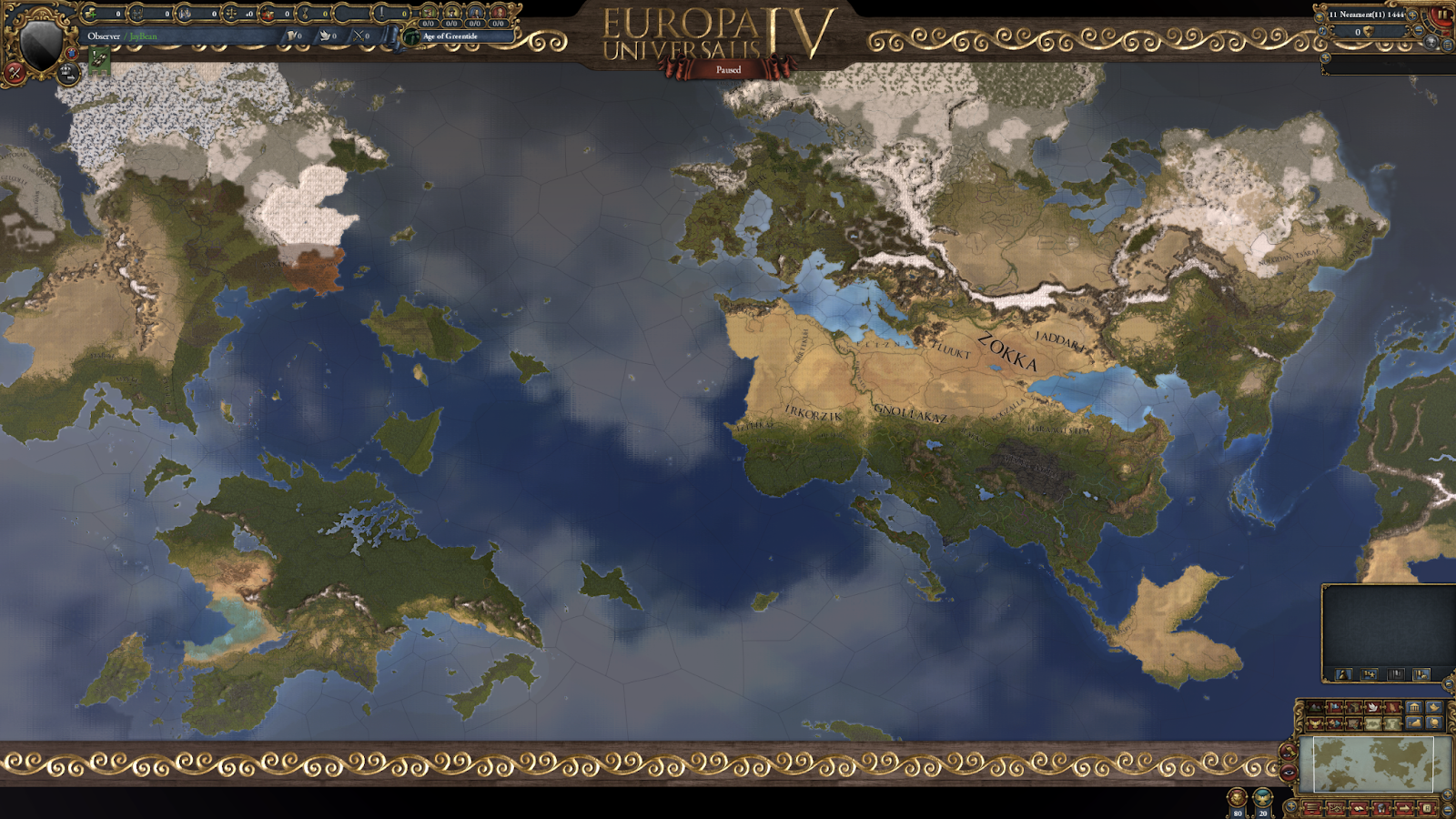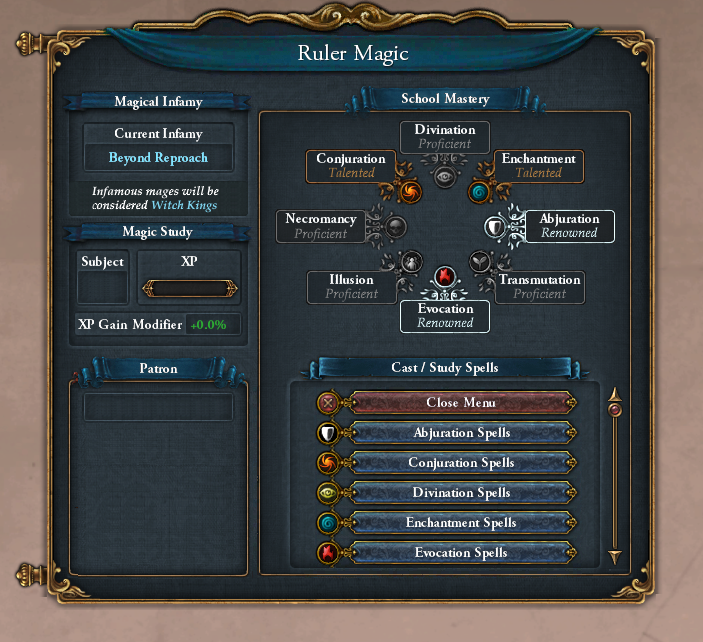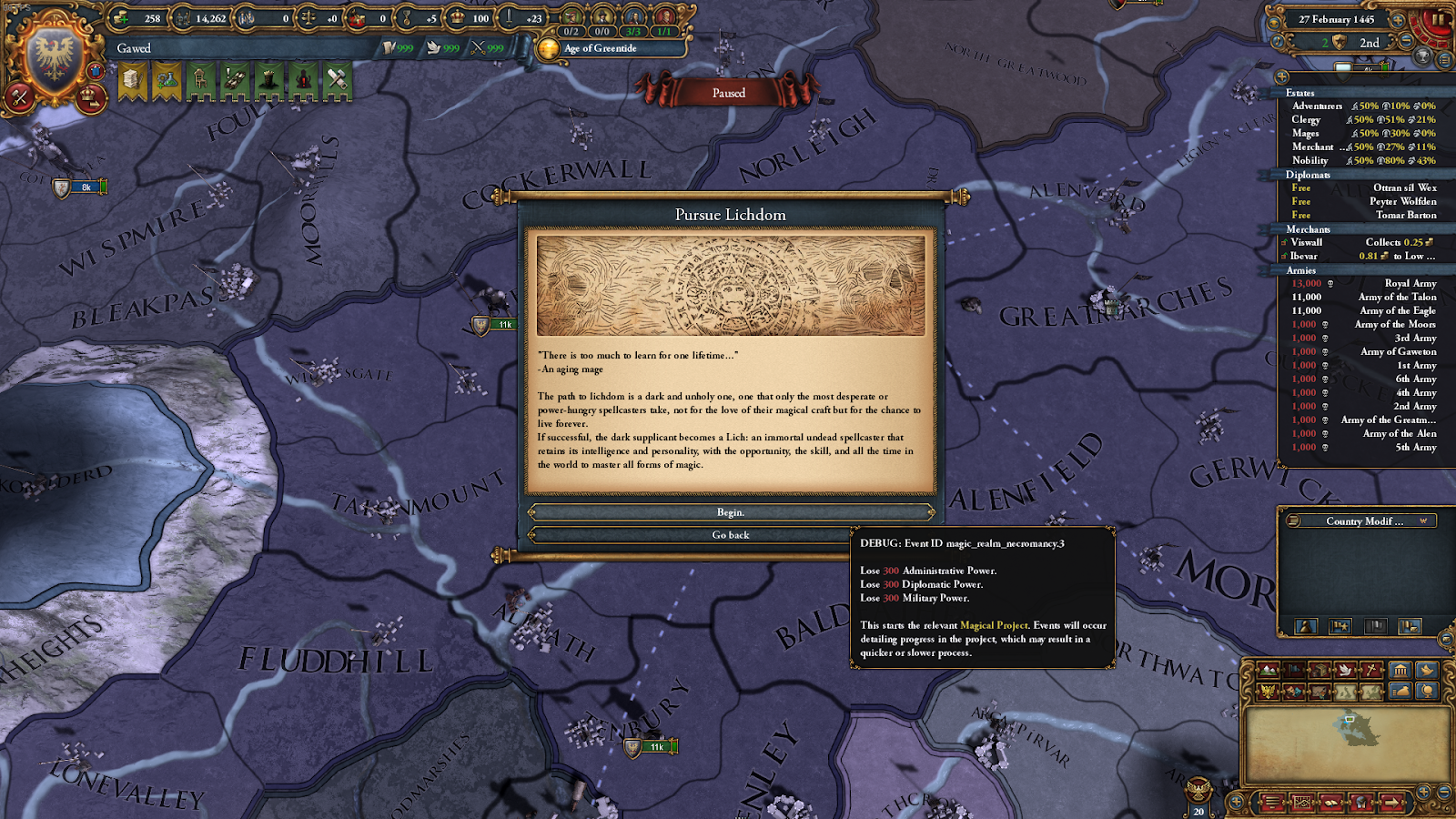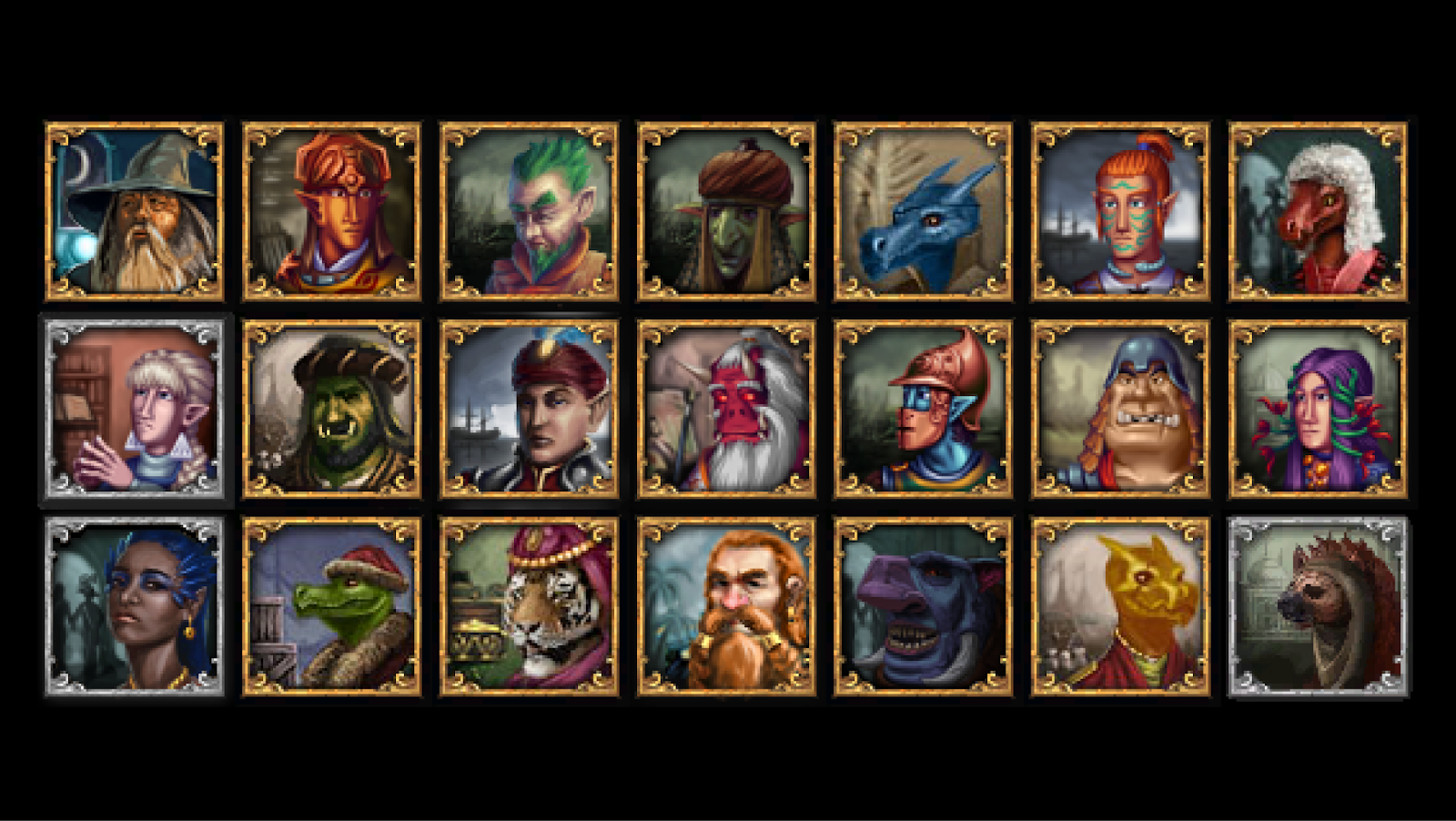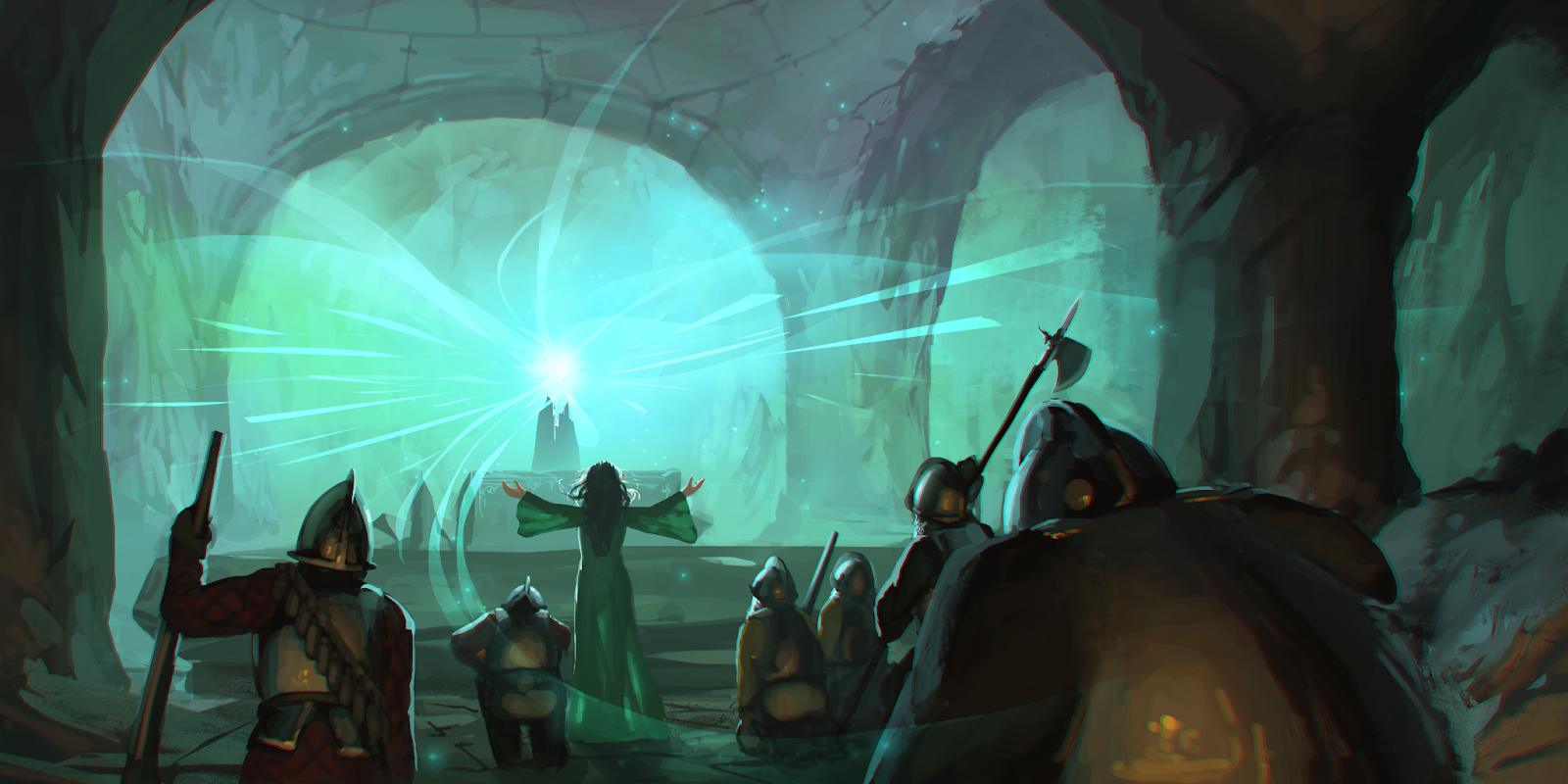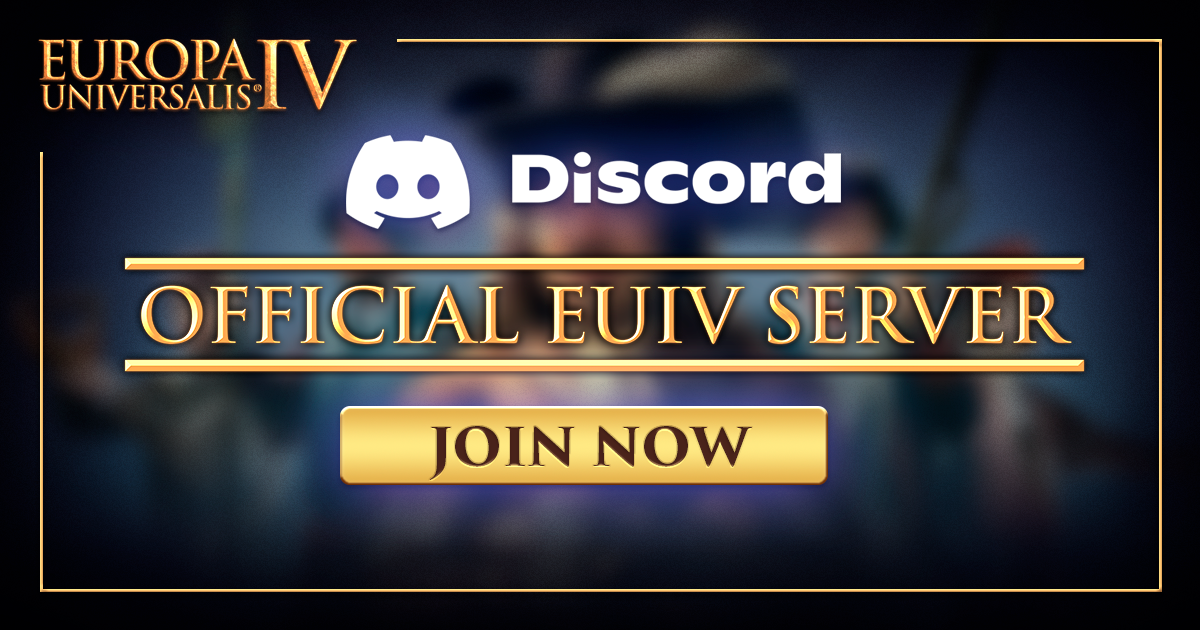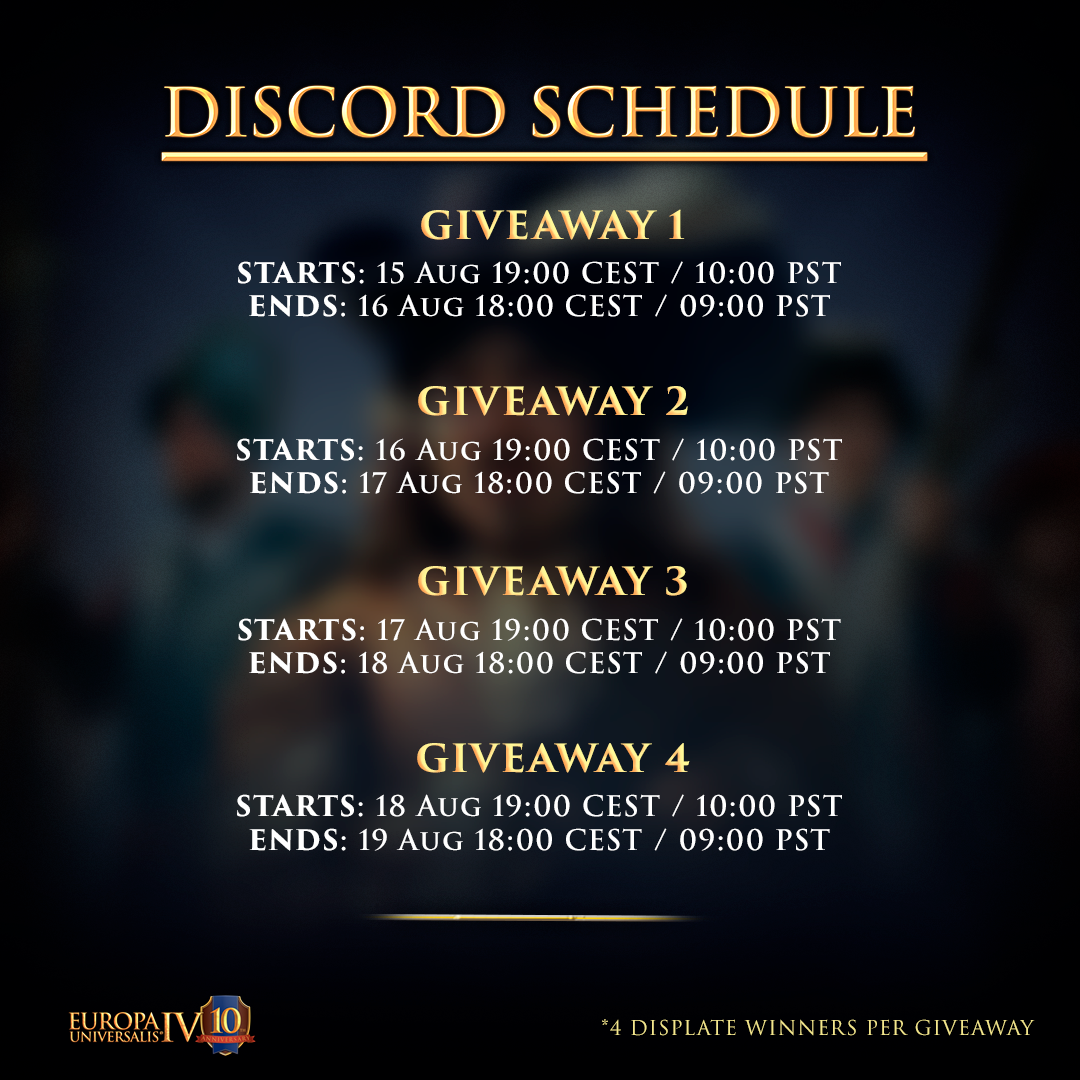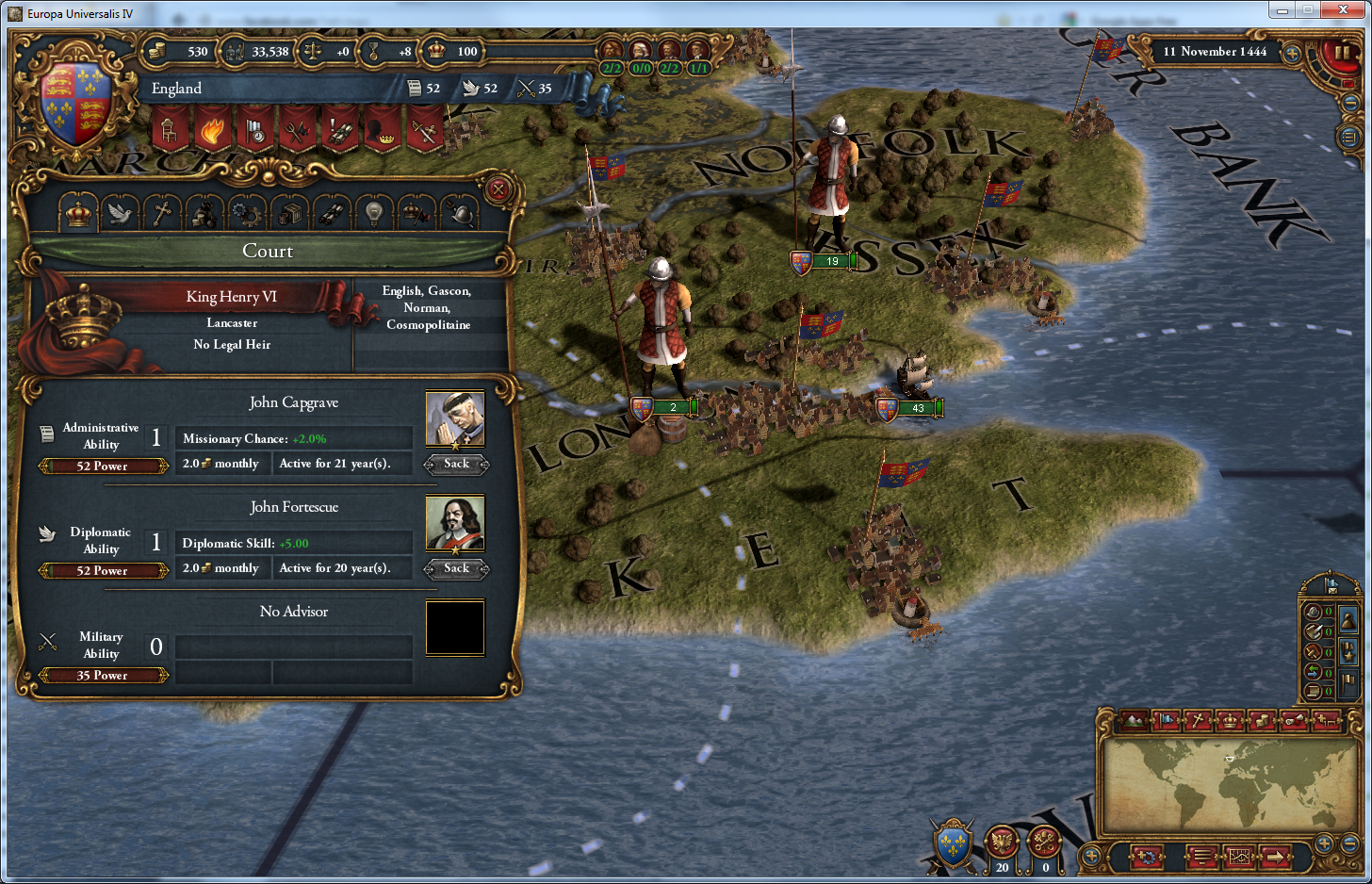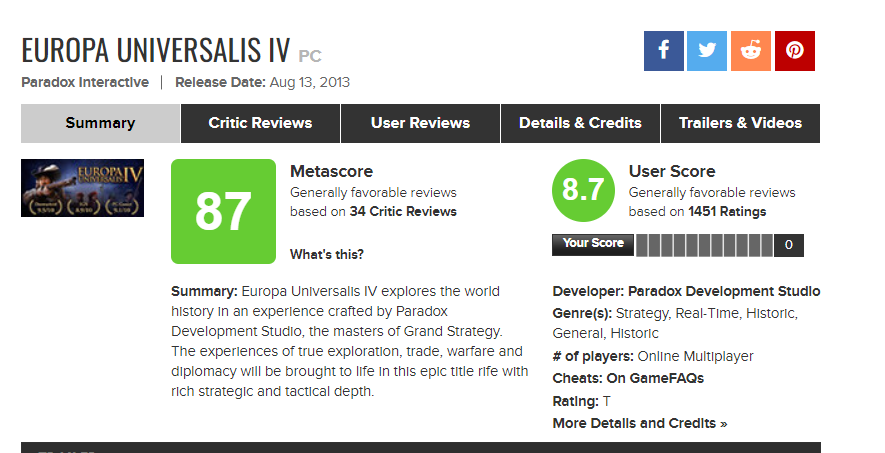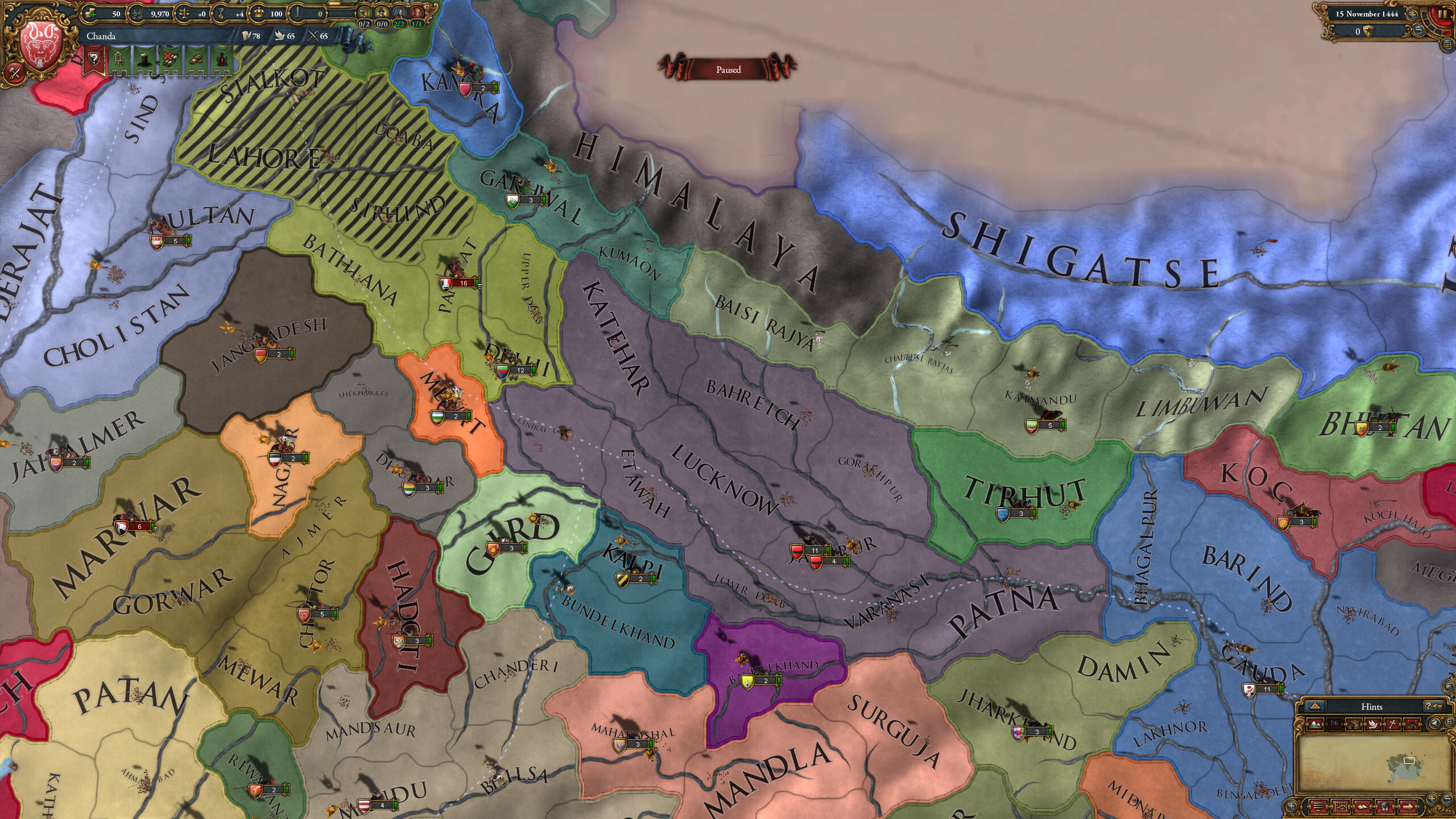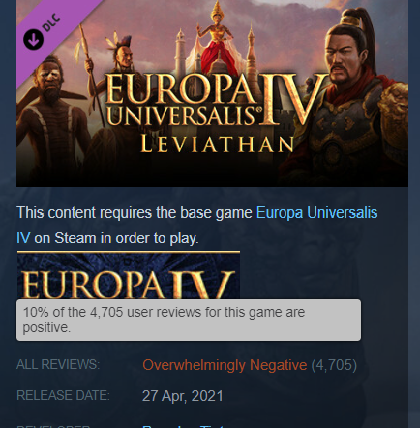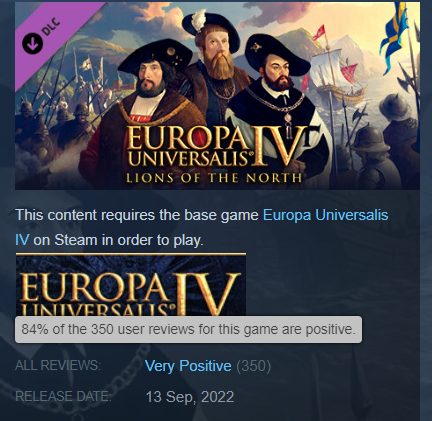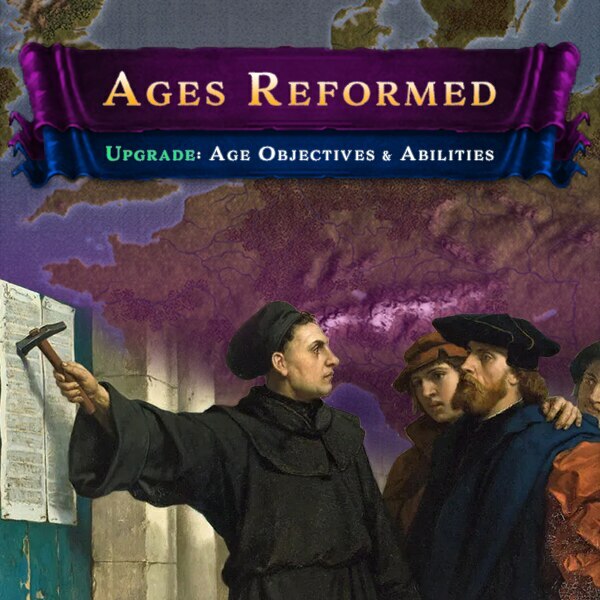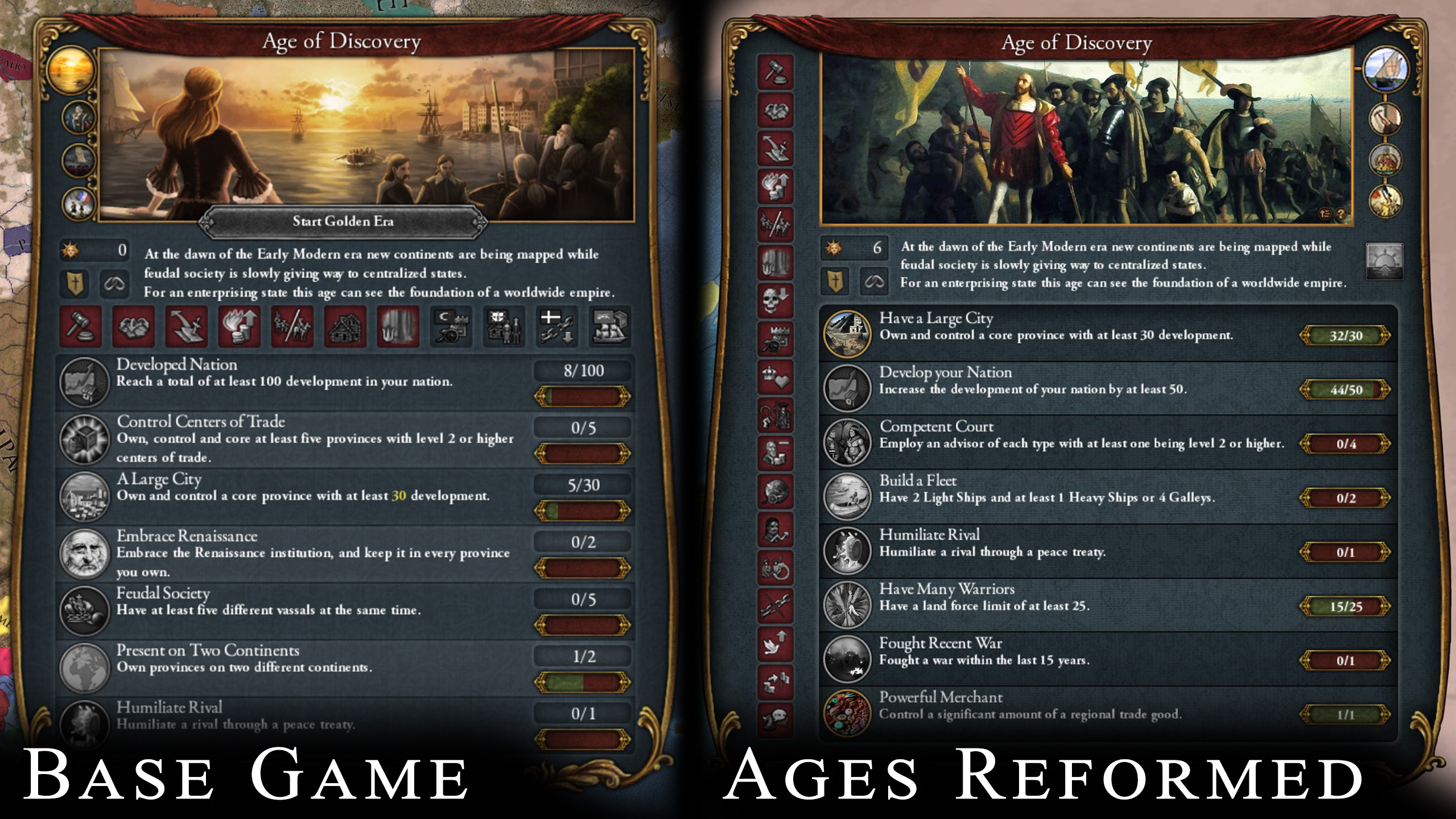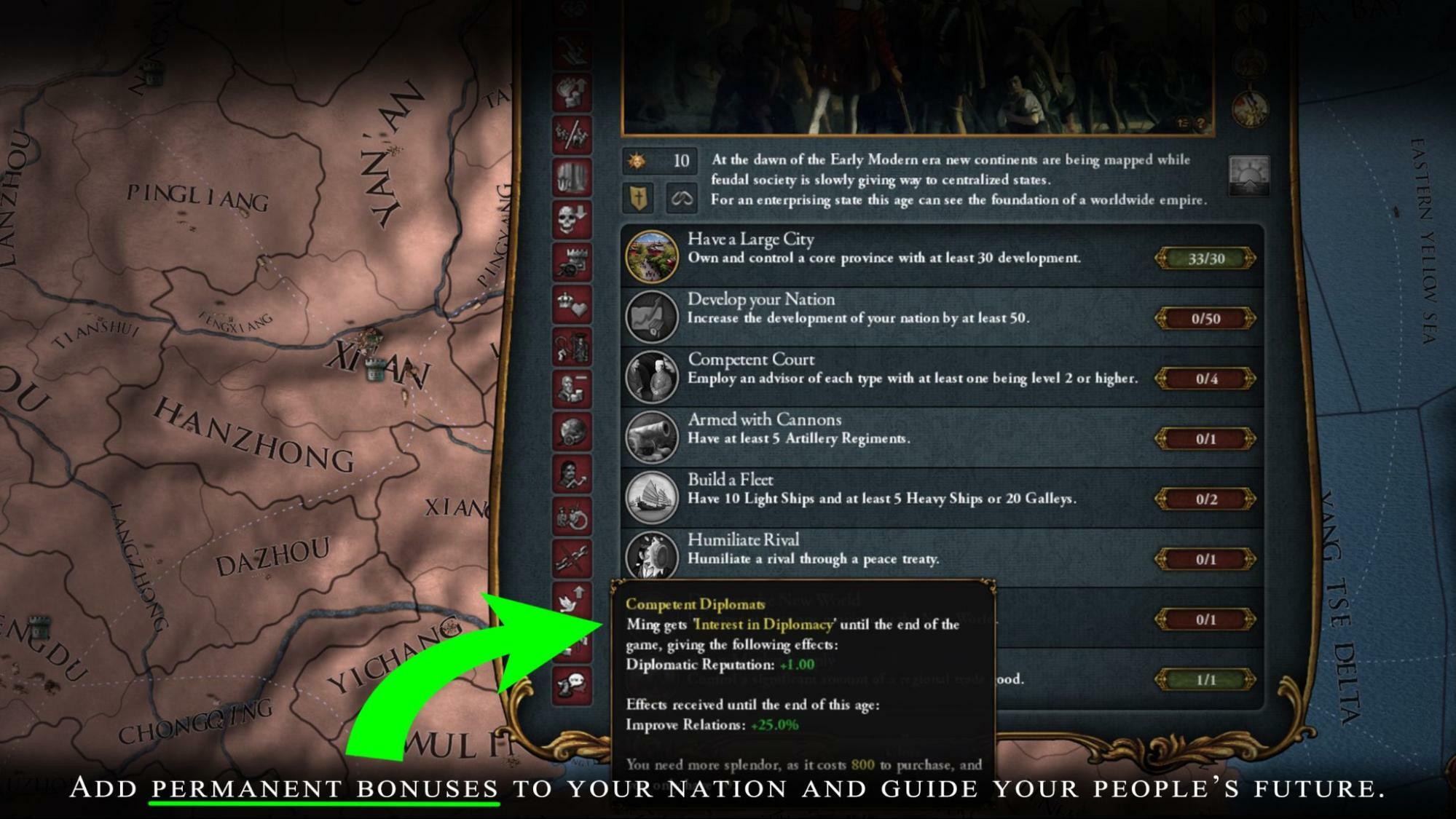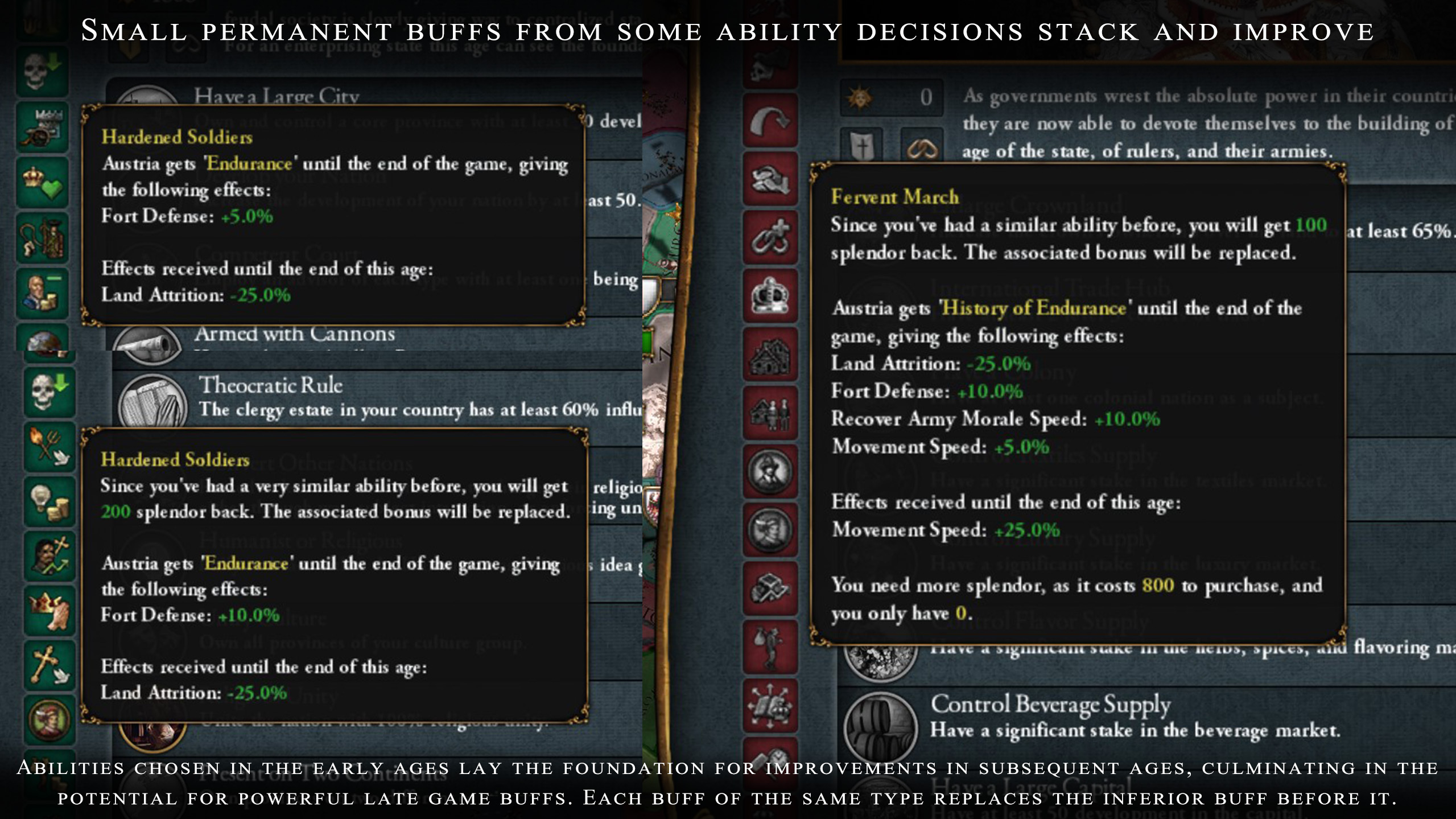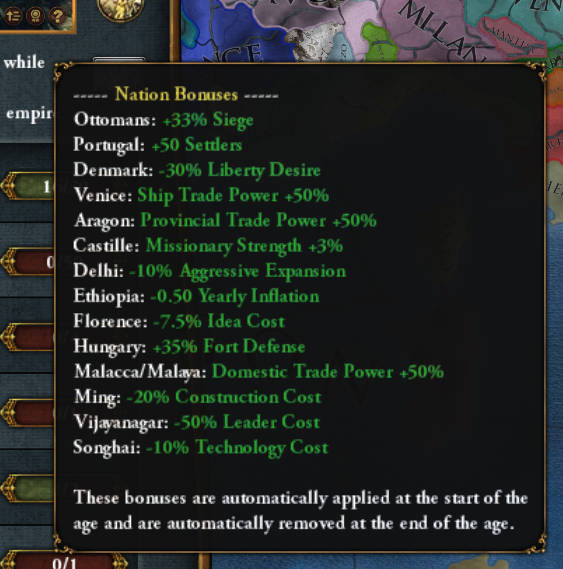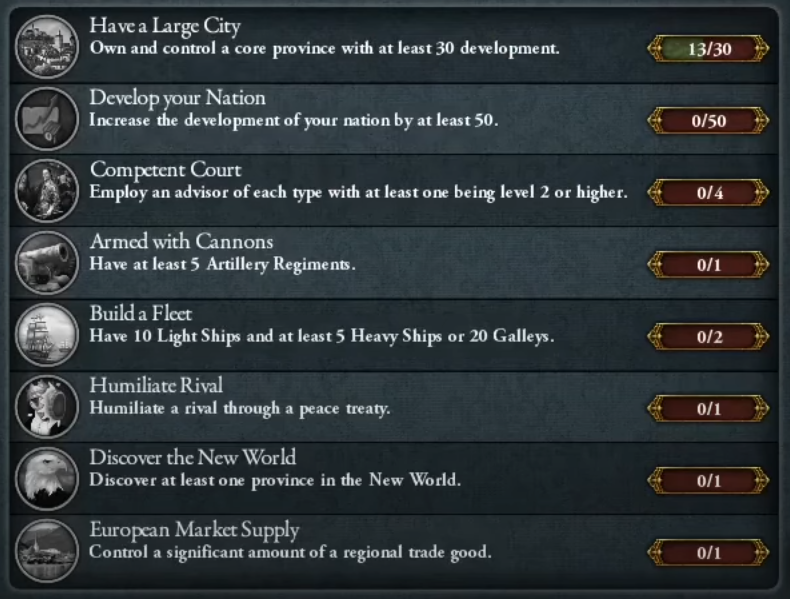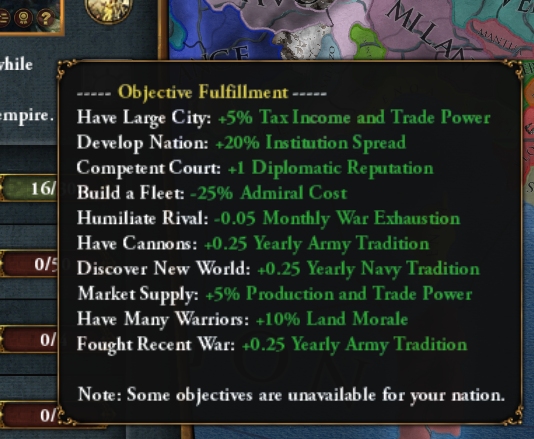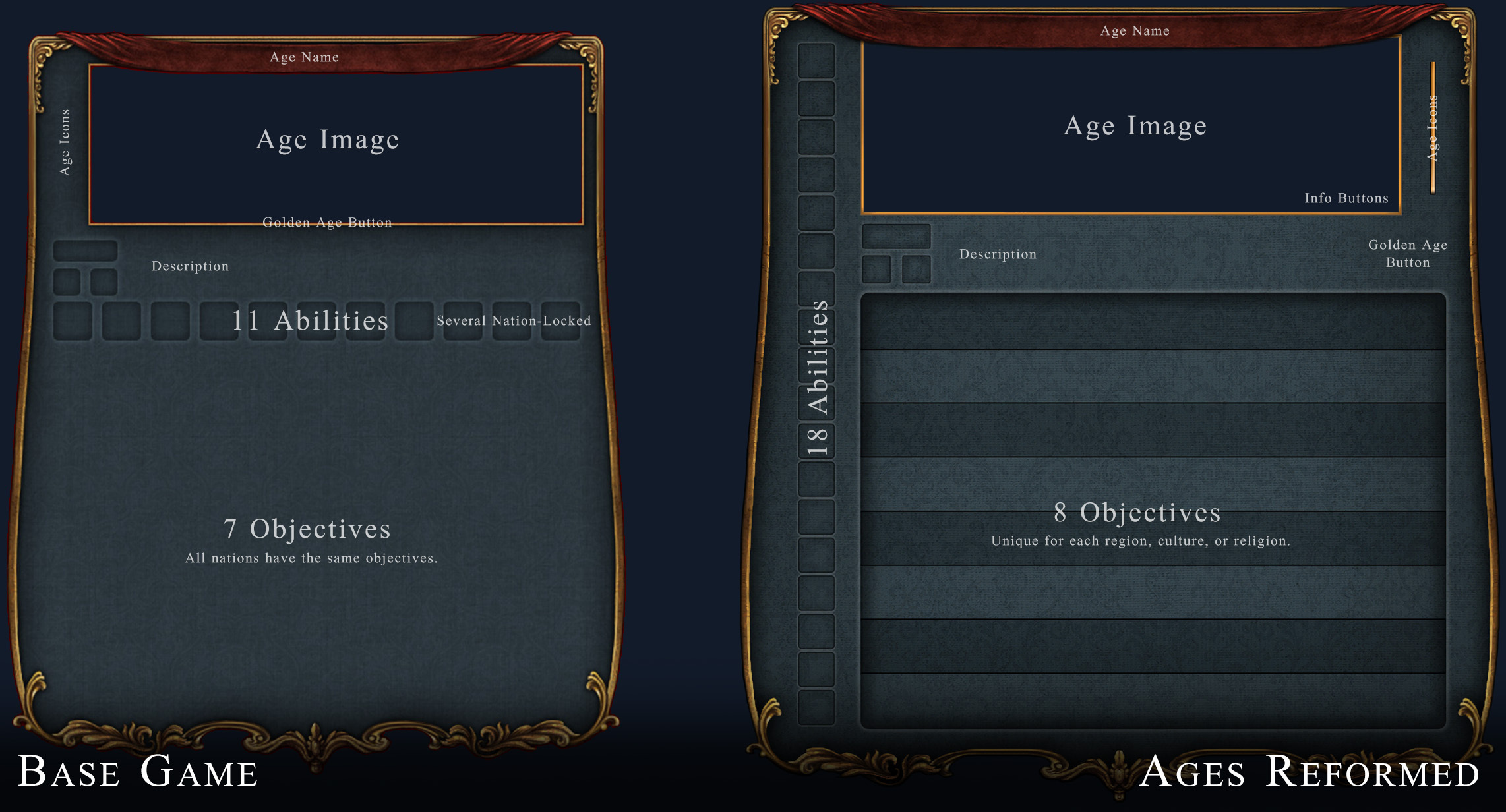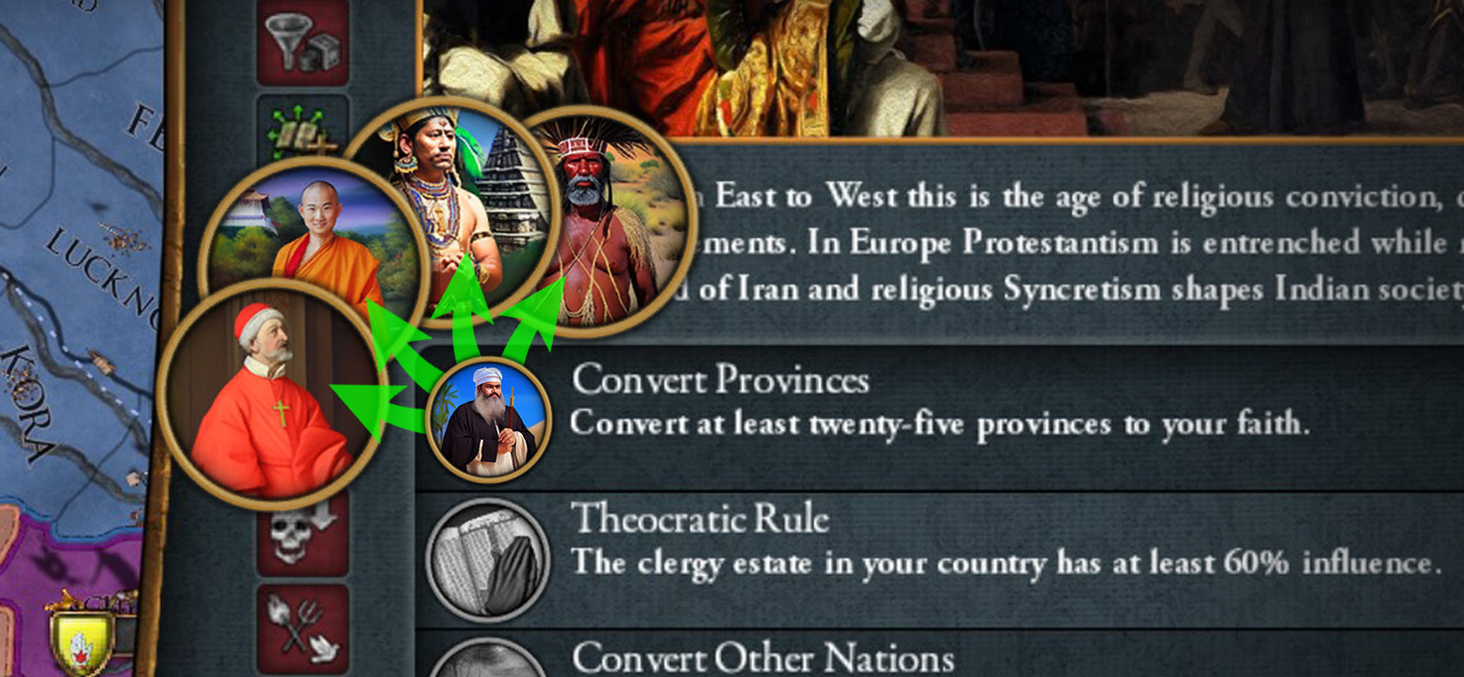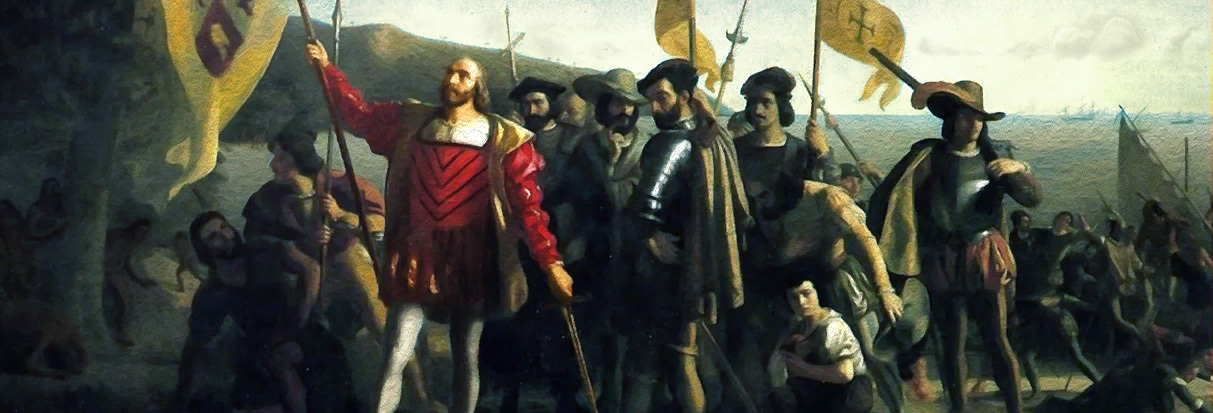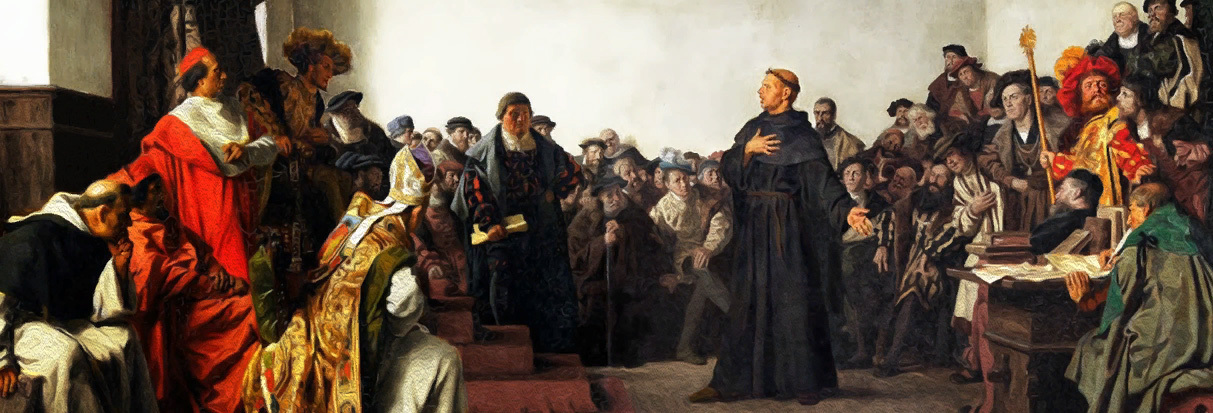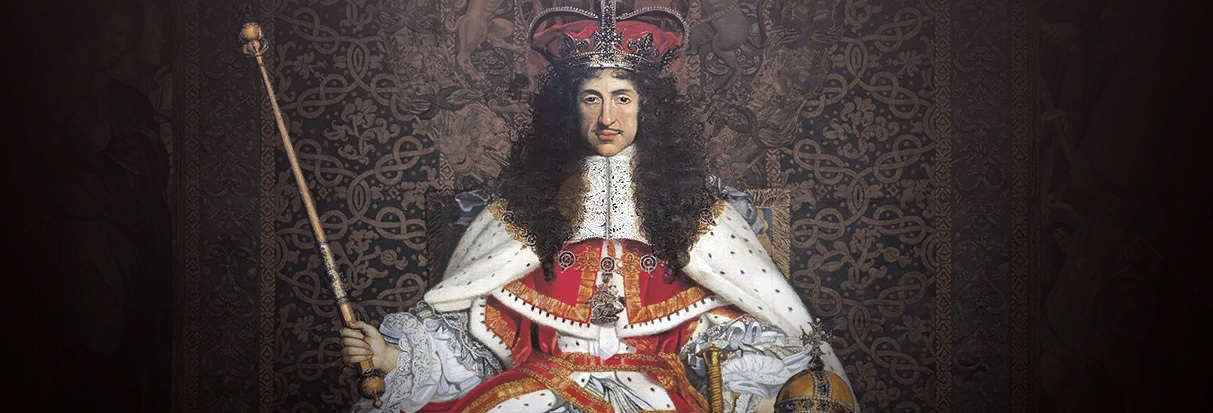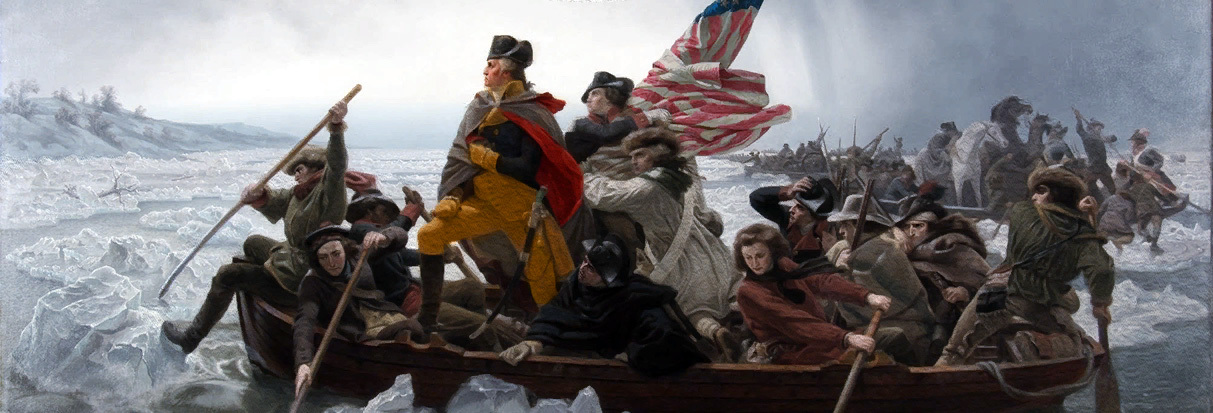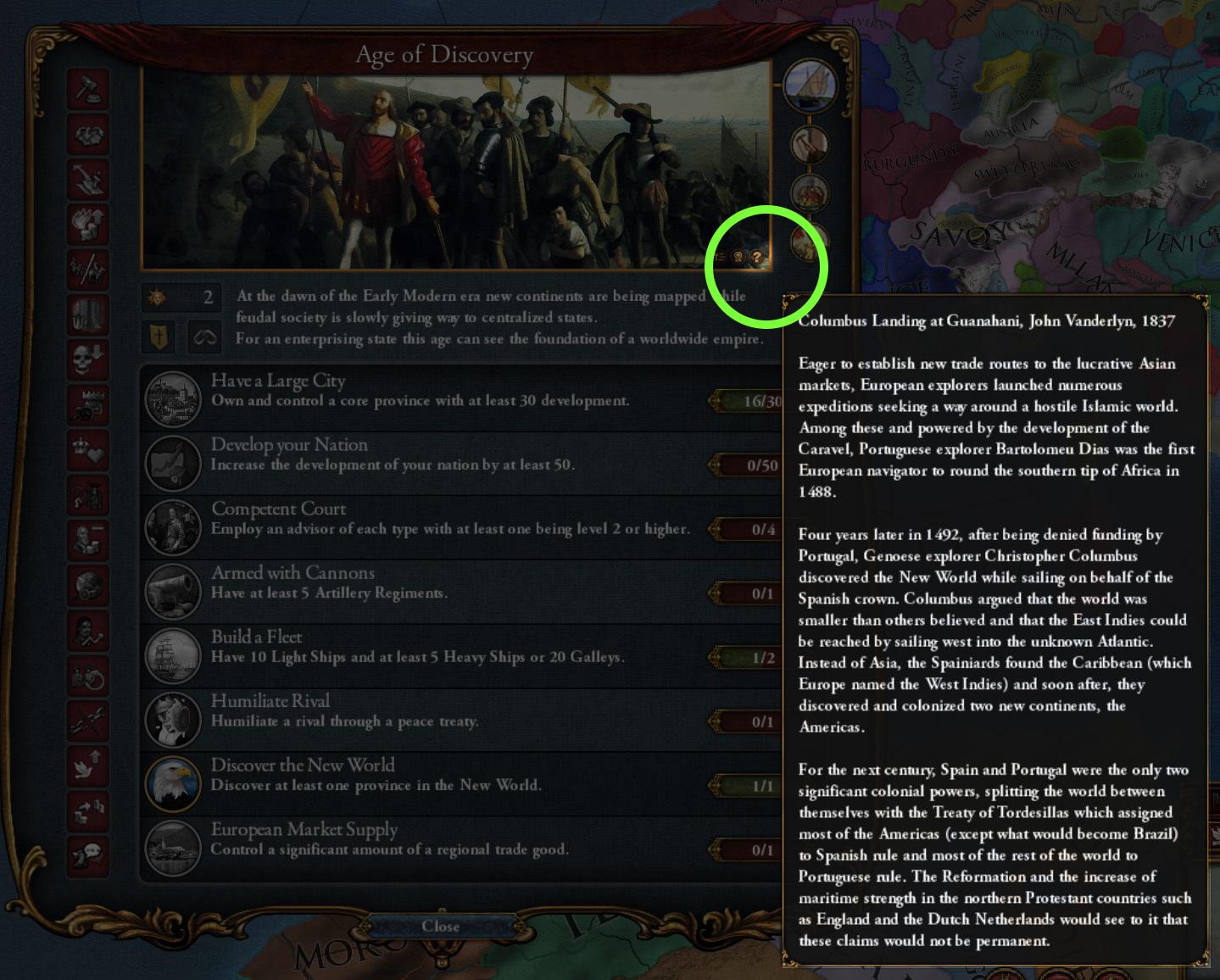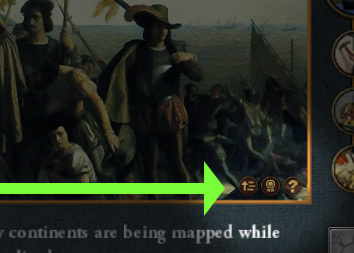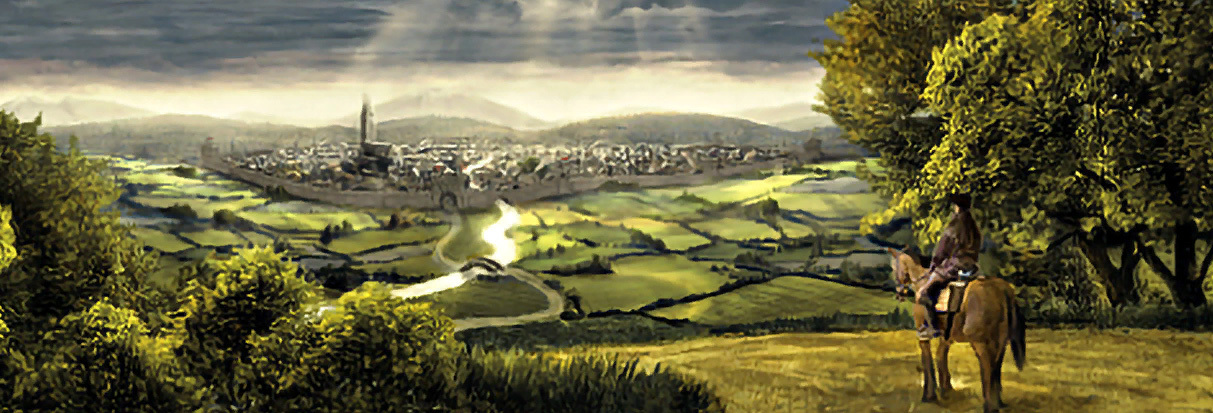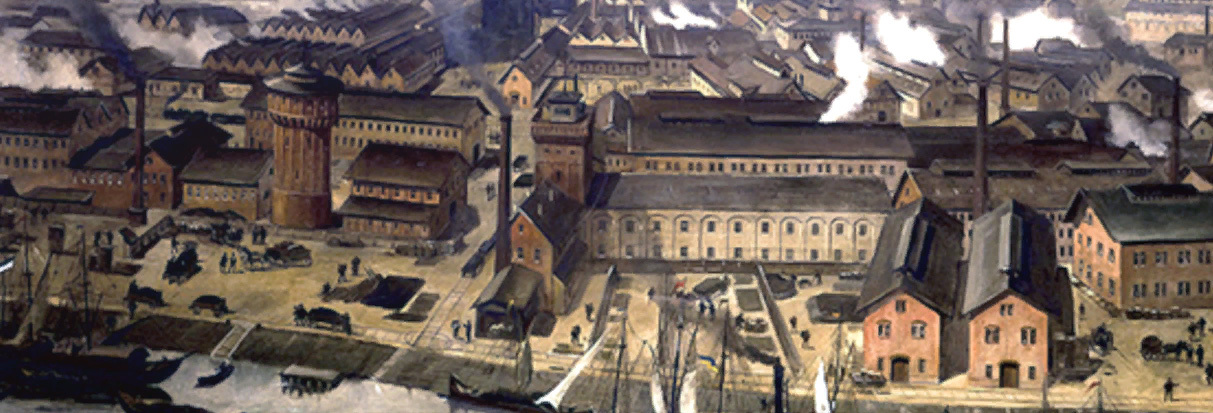
Sep 8, 2023
Europa Universalis IV - vasi
Hello everyone! Our latest EU4 mod spotlight features Beyond the Cape.
This mod enriches the seas of EU4 with a rework of several game mechanics, creating a fresh experience for exploration, navies, and colonisation. Portugal also receives a great deal of flavour in the name of immersion and historicity.
Here is Fen_the_man to discuss their work. Enjoy!
---------------------------------------------
Greetings fellow Explorers,
I am Fen_the_man, the creator of Beyond the Cape. This mod focuses on providing a realistic and historical exploration and colonisation experience and overhauling many events and mechanics in the game to be more interesting, fun, and to better resemble how they happened in real life. The countries revamped by this mod are almost exclusively historical colonisers, mainly Portugal.
One of the main mantras of this mod is “Keep it Simple”. There are no major overhauls of any mechanics, you will not need to learn anything that you do not already learn from vanilla, and there will not be so many provinces added that will lag your gameplay.
As the Dev Diaries of the Domination DLC were being released, I’ve noticed that many people were disappointed that their suggestions and desires were not added. Of course, not everything can be implemented, so I decided to take matters into my own hands and do what I can to help the community. Let’s take a look at what this mod offers:
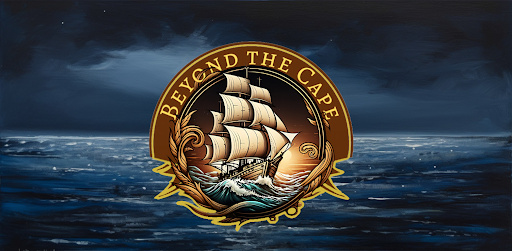
[Beyond the Cape Mod Image]
Please be aware that for this mod to work as intended, the Domination and Golden Century DLCs are required, while Origins is optional. Still, I recommend having all DLC for a complete experience.
Portugal, the country that started the discovery age, did this out of necessity. Henry the Navigator had already conquered Ceuta and sponsored voyages to the Atlantic Ocean, resulting in the colonisation of the Azores and Madeira islands and sailing past Cape Bojador, previously thought to be the end of the world. As the Ottomans further increased their stranglehold on the trade between Asia and Europe, with Portugal being on the westernmost edge of the continent it is inevitable that they would suffer the most. Going around Africa to find the sea route to India and claim its riches was the goal. There was never any interest in sailing west like Columbus did.
To represent this, Exploration ideas have been changed, so that Quest for the New World is no longer an idea there. Many other missions, estate privileges and events were changed to prevent early exploration of open seas.
The countries that can explore in the first decades of the game are very limited, obtaining their explorers through missions and events. This results in Portugal exploring around Africa rather than being able to map the New World by 1450.
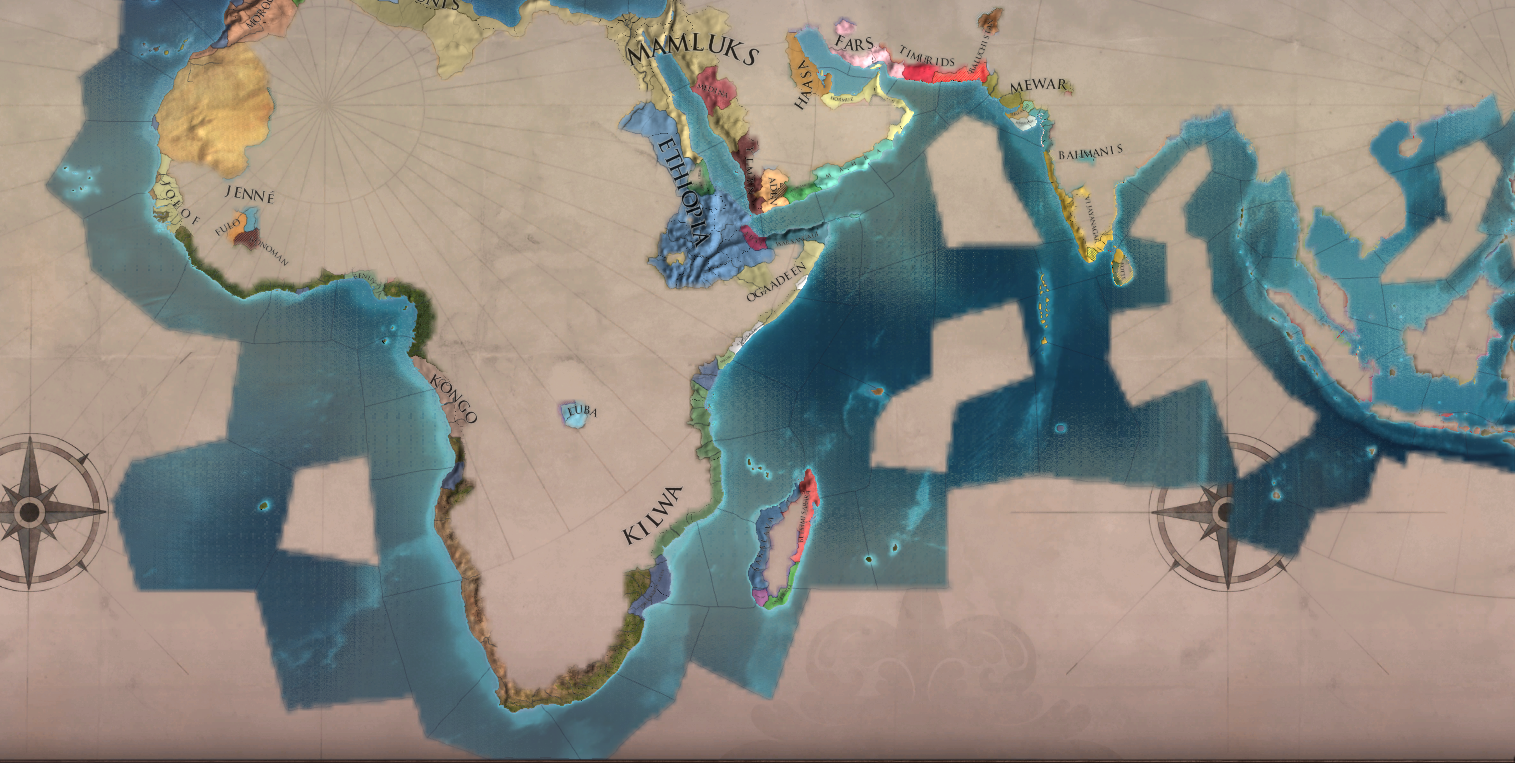
[Portugal going around Africa without exploring New World]
You’ll also notice that trade winds have been reworked to have a bigger impact. This is not the only obscure mechanic that has been touched upon in this mod.
As we know, Christopher Columbus was the first European to set foot in the New World, sponsored by Castile. This event is already represented in the game, but now it is much more relevant. Columbus’ event will allow the country to sail to the Caribbean and be the first to discover the New World.
Portugal will get the Columbus event before Castile does, if they have Exploration ideas and the year is 1488. However they can only accept his proposal if they have not discovered the Cape of Good Hope. If they reject, Castile will get the event if they have Exploration ideas and there are no provinces in Iberia owned by muslims.
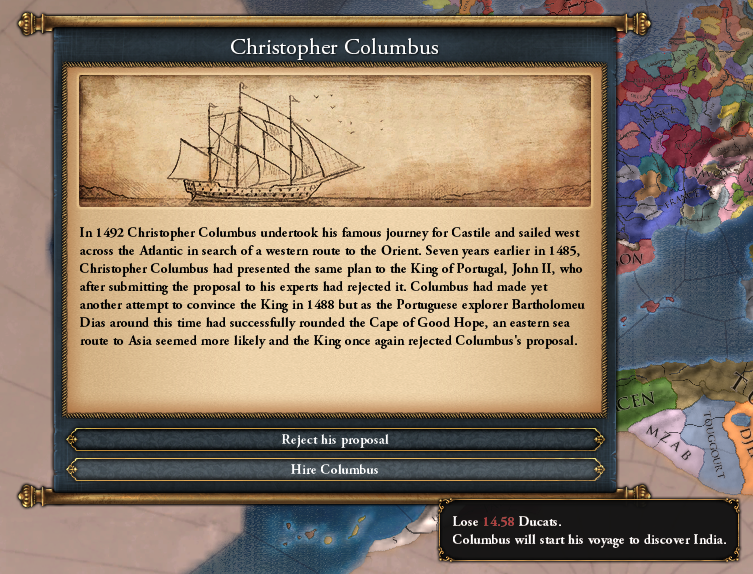
[Columbus event 1]

[Columbus event 2]
If Castile is the one getting the Columbus event, Portugal will be able to contest his discoveries, claiming those lands as rightfully theirs. Castile can then negotiate with Portugal, and the Treaty of Tordesillas will be enforced from then on. It will only allow Portugal to colonise in Africa, Asia and parts of Brazil, while Castile can only colonise the rest of the Americas. Both countries also get a colonial growth bonus.
In order to avoid confusion, the vanilla Treaty of Tordesillas has been renamed to Inter Caetera.
There are two other instances during the game that will modify the treaty under certain circumstances. You can revoke the treaty any time you like via decision, paying the consequences for it of course…
Eventually, countries that pick Exploration ideas will be able to enter open sea tiles, once they hit diplomatic tech 9.
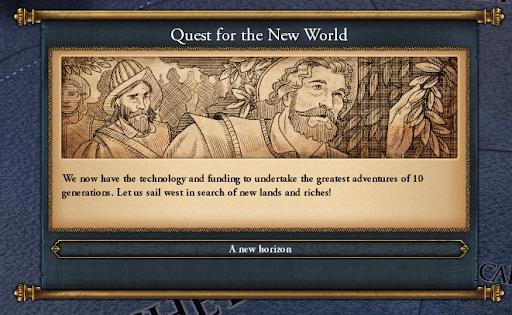
[Quest for the New World event]
There is also a new estate that aims to replicate the Atlantic Slave Trade - the Slavers Estate. This estate is unlocked once an European country has a presence in West Africa and in the New World, complete with unique privileges to choose from, agendas, events and a disaster.
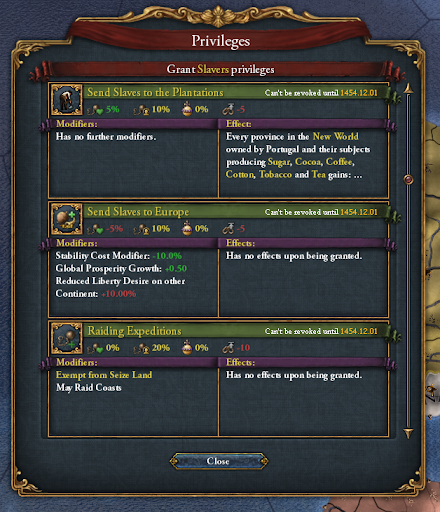
[Slavers privileges]
One of the most ambitious additions to the exploration and colonisation experience is the Settler Pool mechanic. It is available to every country with a colonist and aims to represent the available population to be sent to colonise new lands. Smaller countries like Portugal had mostly trade posts composing their global empire, rather than vast swathes of land as is the case with Spain.
The max settler pool is calculated based on a country’s total development and number of provinces in states. For each province being colonised, 1000 settlers are deducted from the pool, being replenished when the colony is finished. Depending on the percentage of available settlers in comparison with the total number of settlers, a modifier is given to the country that either boosts or hinders colonisation efforts.

[settler pool decision]
The Hunt for the Seven Cities of Gold has also been expanded upon. Now the search is guaranteed to happen when you start searching with your explorer. Events will happen during the course of their exploration that will determine the likelihood of finding the fabled cities of gold. There are three possible outcomes, much like in vanilla. However, the best outcome will uncover a monument that will yield great rewards when you claim it.
Even if you do not claim it, since you were the one discovering this monument, no other nation knows of its location, therefore only you can unlock the monument by owning the province.
The Fountain of Youth works much in the same way as the others, except it is your explorer that needs to do the… exploring.
Each monument exists in a different region. Go claim them all!
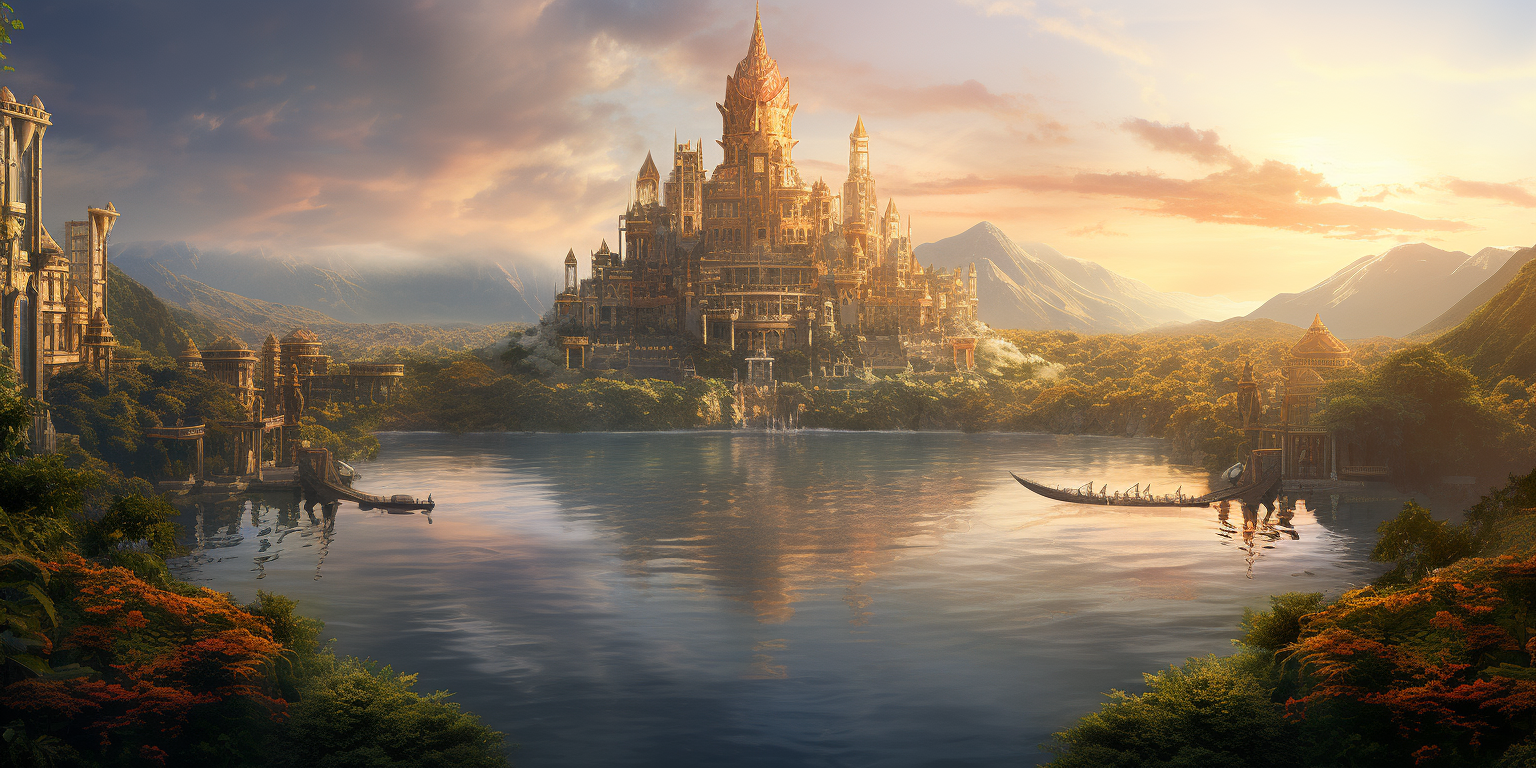
[El Dorado]
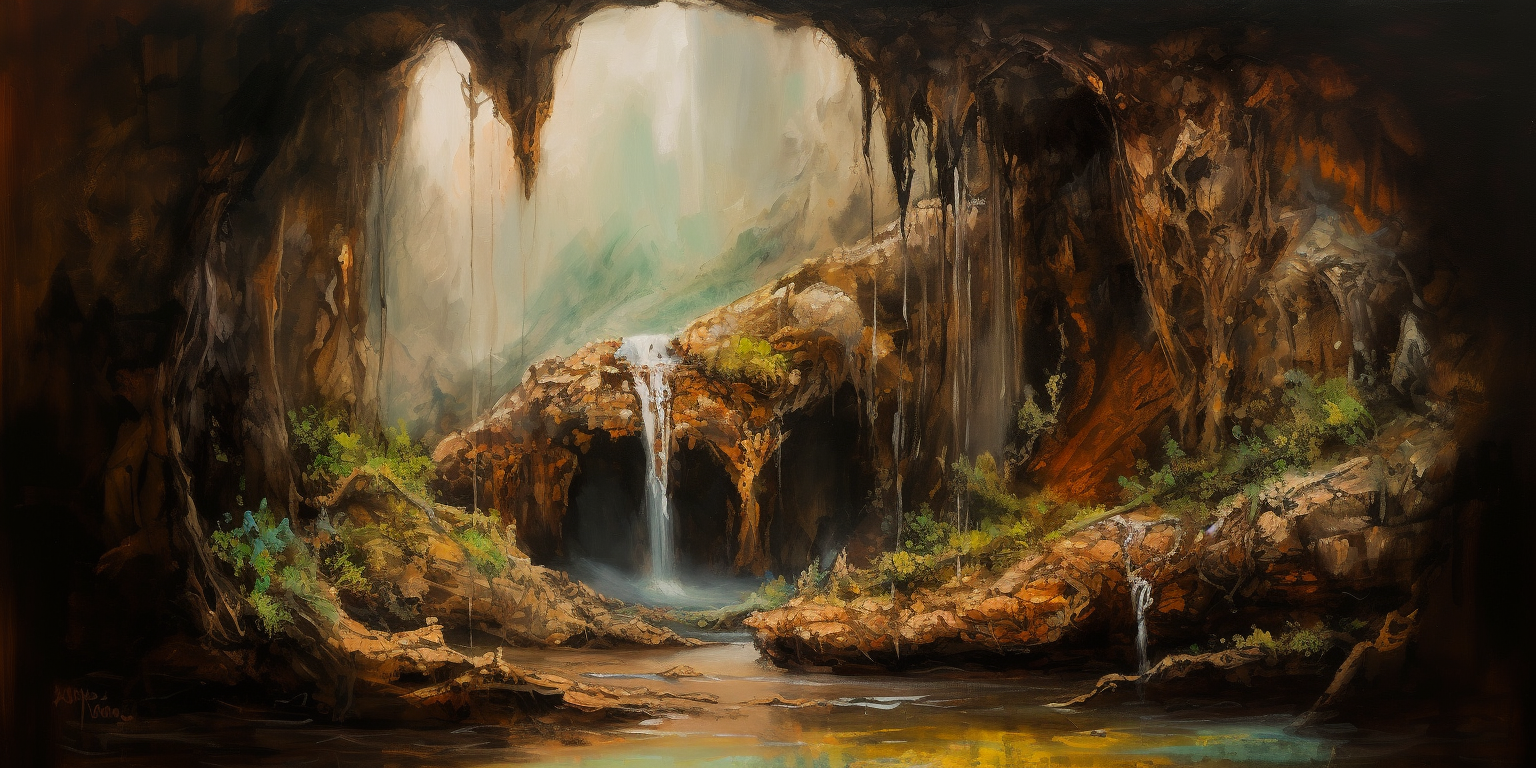
[Fountain of Youth]
One of the major reworks of this mod is how the Castilian Civil War disaster happens. In the base game it is quite uneventful, spawning a few rebels that you have to defeat and resulting in an opinion boost with either Aragon or Portugal.
In real life though, this was a major event in Iberian history, resulting in a conflict between Portugal and Aragon to decide which country would place their consort as ruler of Castile. Aragon won this war, and Isabella was made Queen of Castile. Together with Ferdinand of Aragon they were the Catholic Monarchs, and eventually would unite the two countries to form Spain. Things could have been very different though, had Portugal placed Joanna la Beltraneja as ruler of Castile.
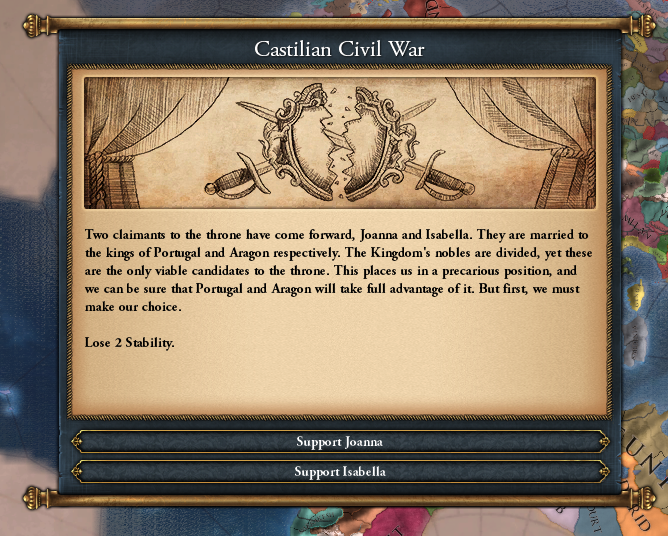
[Castile Civil War initial decision between Joanna and Isabella]
This disaster has a lot of decisions and different outcomes. You can decide to stay out of it altogether, or participate to claim the grand prize. Eventually, even France can get involved indirectly to further their own interests.
When this disaster ends, if either Portugal or Aragon placed their consort on the throne of Castile, there will be something else to keep you on your toes. Both countries will get an heir, and when she rises to the throne of either country, she will form a personal union between them. Whoever has the most legitimacy, stability and prestige, as well as development in the capital, will be the Senior Partner, so watch out! It is generally easier for Castile to become the senior partner as they only have to fulfil one of the aforementioned requirements. If the heir dies though, there will be no personal union outcome (yet).
In this disaster both the Iberian Wedding event and Isabel of Castile event have been incorporated, so those will no longer fire as they are no longer necessary.
Regardless of the outcome of the disaster, even if Portugal loses that war, it might be beneficial to them to participate in it, as you’ll be able to see in the mission Intervene in Castile. This mission has 3 different rewards based on the outcome of the Castilian Civil War.
In vanilla, armies are more important than navies, and rightfully so. However, navies do not get the importance they deserve. The global empires of Great Britain, Spain, Portugal and Netherlands had a powerful navy that projected influence and allowed them to control their trade and colonies.
In order to try and represent this, there have been 20 unique naval units (so far) added to certain countries that will replace their standard counterparts. Portugal will get the Nau instead of the Carrack, Venice will get the Argosy instead of the Galley, Castile and Spain will get the Manila Galleon instead of the Wargalleon, to name a few. These units have better stats than their standard counterparts.
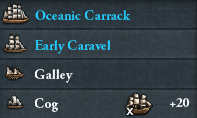
[Portuguese Unique Units]
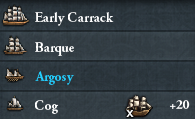
[Venetian Unique Unit]
The naval special units have been renamed. It felt wrong to have a Great Frigate ship be a Caravel special unit. So now Caravels are Armadas, Galleons are Full-Rigged Ships, Man-of-Wars are Royal Ships and Geobukseons are Turtle Ships. Additionally, some countries are able to modify their special units via decision, giving them interesting bonuses and making gameplay more fun.
Roughly half of the straits have been removed and military access has been restricted to only neighbours (except in the HRE). This prevents countries from marching their armies through entire continents and laying siege to your lands. Now they will be forced to invade you by sea. Blockades are also more severe, increasing devastation at double the rate. Some narrow sea tiles also give reduced engagement width, such as the Sea of Marmara or Strait of Gibraltar.
The AI will also pick naval ideas more often. Countries such as England and Tunis will have a more powerful navy, so players can actually have a challenge at sea.
This is really the star country of the mod, but do not think that means you’ll have an easy time with them! In the quest for historical accuracy, a lot of things we take for granted have been removed. Case in point: Portugal and Castile are no longer historical friends. In fact, it is very likely that they will start the game as rivals!
So how do you fight Castile? There’s a reason Portugal’s borders remain virtually unchanged since the 13th century. This is due to staunch resistance to foreign invasions. This mod gives you the tools to replicate this, the rest is up to you.

[Portugal ideas][/i]

[Portugal missions]
Coimbra starts with the level 1 monument Batalha Monastery, which gives a little boost to the Portuguese army. Lisboa does not have any monuments at game start, but you can unlock two there by following the mission tree.
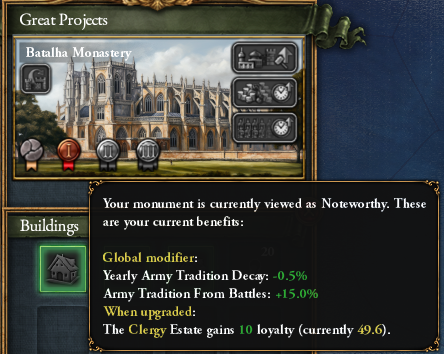
[batalha Monastery][/i]
Portugal gets a decision to upgrade their Armada ships to a more expensive combat-oriented light ship. There is also a decision to upgrade their Full-Rigged ships, sacrificing combat prowess for the ability to transport units.

[Armada and Full-Rigged ship upgrades][/i]
The Order of Christ holy order has been added. As the official successors to the Knights Templar and main financiers of the Portuguese discoveries, they are arguably the most important holy order in Portugal’s history, who displayed the order’s famous cross in their caravels’ and carracks’ sails.

[Order of Christ]
Portugal’s government has also been reworked. It allows the establishment of Feitorias along the African, Asian and Brazilian coast. These are trade posts that give you trade power in exchange for increased province governing cost.
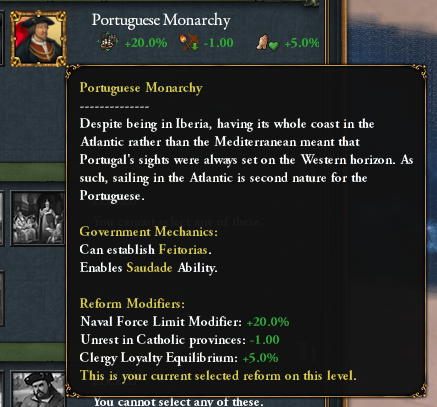
[Portugal government]
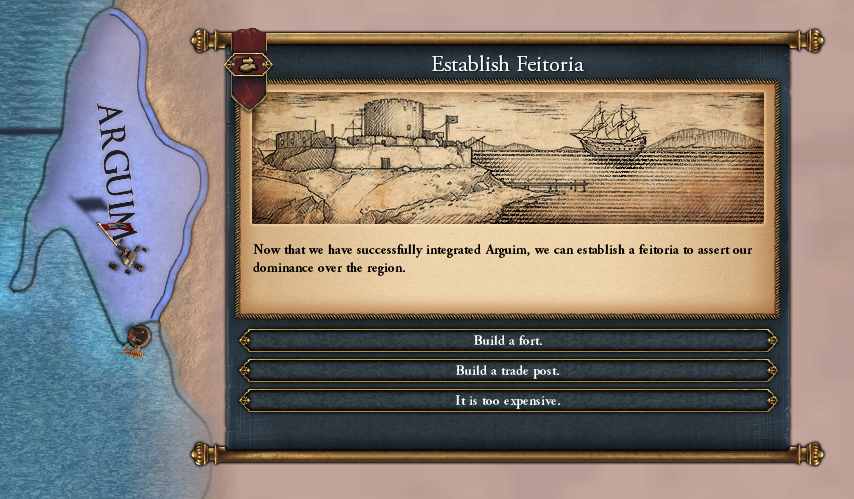
[Feitoria event]
It also unlocks the Saudade mechanic. Saudade is a representation of the willingness to go out to sea rather than stay home, ranging from 0 to 100. Neither is inherently good or bad, it has to do with your playstyle and current situation of the country, and it is up to you to control it.
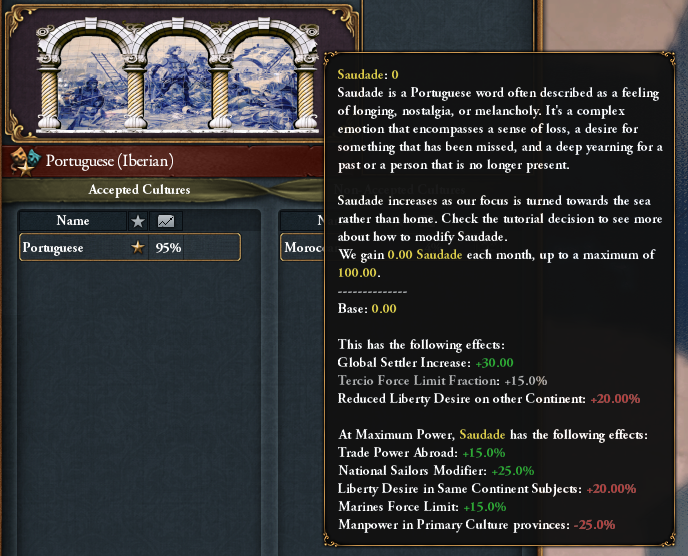
[Saudade mechanic]
If you have 100 Saudade and own at least 5 times more territory provinces than state provinces, you may trigger the Overextended Empire disaster. This disaster does not spawn rebels, but drastically reduces the economic efficiency of your empire. It represents the difficulties of managing a scattered overseas empire with limited resources.
This disaster is repeatable, so don’t make the same mistake twice!
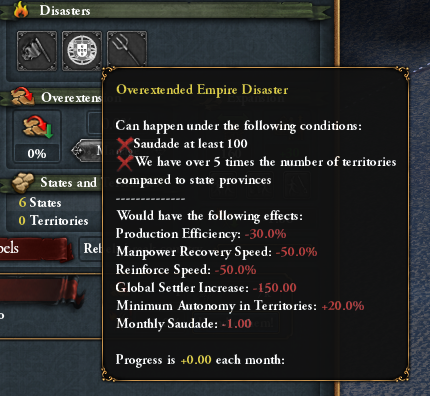
[Overextended Empire disaster]
Each Portuguese monarch can now choose an ordinance to focus on during their reign. If they rule for long enough, they can even make their chosen ordinance permanent, lasting for the remainder of the game.
Ordinances range from simple ones, such as giving +10% tax or +10% production efficiency, to more unique ones, such as the Padrão ordinance that allows you to place the namesake Padrão (stone pillar standards) in uncolonised provinces. Once colonised and grown into a city, you will be able to choose the trade goods the province will produce - for a small cost.
There are hundreds of new events for Portugal, including the 1755 Lisbon Earthquake event chain, the Portuguese-Mamluk wars including the important Battle of Diu, and the attempted capture of the Prophet Muhammad’s remains by Afonso de Albuquerque. All these events ensure that you’ll have a rich experience and never a dull moment.
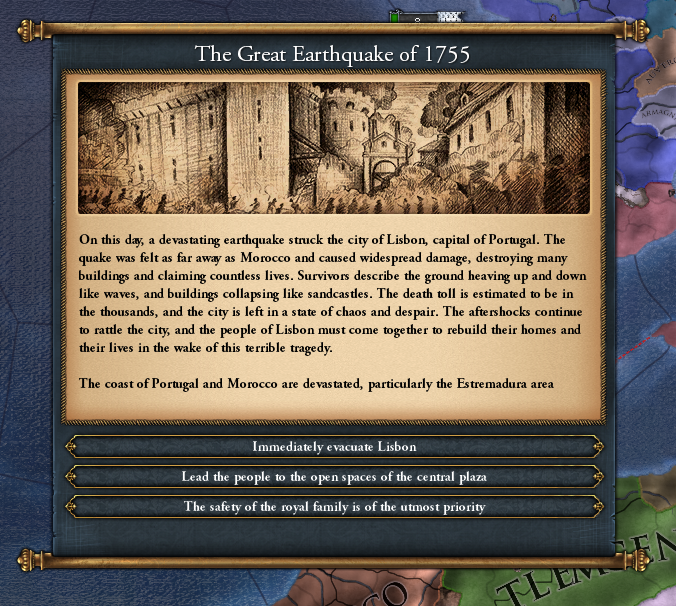
[Lisbon Earthquake]
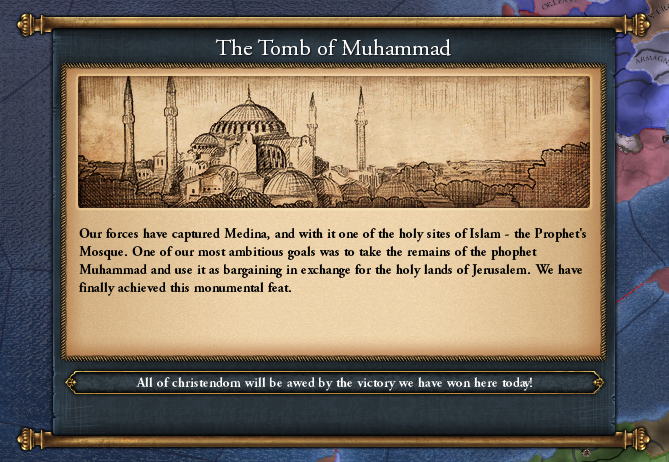
[Tomb of Muhammad]
Portugal is also able to form Iberia, which is basically the same as forming Spain with extra steps. Naturally they cannot form Spain anymore. Iberia keeps the Portuguese ideas, and then gets a few dozen unique ones. They also get their own idea set.
To conclude this Portugal section, we give players a decision to choose Portugal’s colour, so Greentugal fans are not disappointed by the new Bluetugal.
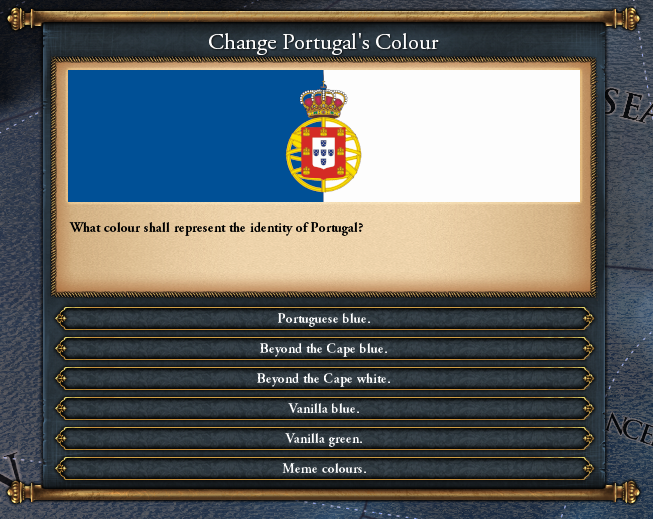
[Portugal colours]
I will not spoil what the “meme colours” are, go check them out for yourself ;)
Other countries that have received some love so far have been:
This mod also addresses many other areas of concern to make gameplay feel more realistic, rewarding and challenging, including but not limited to:
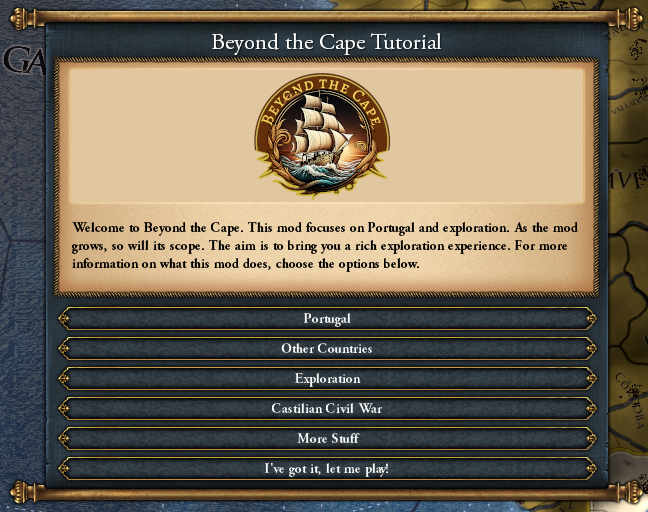
[Tutorial event page 1]
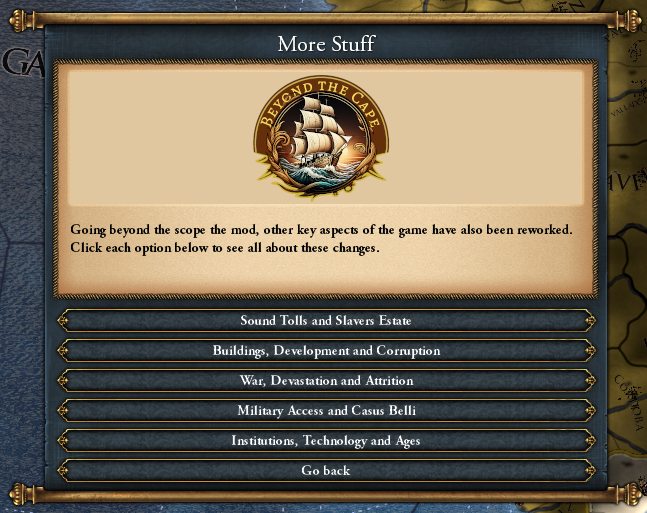
[Tutorial event page 2]
Each of the new military holy orders now have a province that is their headquarters. By establishing a holy order in the area this province belongs to, not only will you unlock a modifier in the headquarters province, but also a mercenary company representing the knights of that order, each with their own unique attributes and sprite. Below you can see the Knights of Montesa.
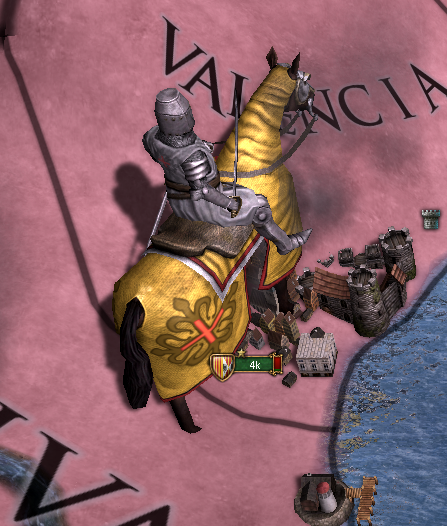
[Knights of Montesa]
Many new songs with Portuguese flavour have been added, giving you a little taste of Portuguese culture, so you can be fully immersed in your playthroughs. You can toggle them on/off in the music channel.
We’ve also got permission from Halcyon Reign to use their amazing music in the mod. Fitting, since one of their songs is called Beyond the Cape, and it rocks! Their work is wonderful, I’m sure you guys will like it. As usual, you can also toggle it on/off in the music channel. Link to their social media will be present in the mod’s Steam page at the end of the spotlight.
There is also new loading screen art, as well as loading screen tips specific to the mod. More will be added in time.
There’s so much more to talk about! But I don’t want to spoil the whole thing for you. I encourage you to try it out and see for yourself, and find all the new things this mod brings to the game.
We’re currently in the process of reworking the idea groups, adding a few more (not many) and making meaningful changes to the way you interact with them. This will probably come in the form of a submod.
Another submod we are planning is related to unit composition, but this still very much on paper, and will only be seriously worked on after the idea submod.
Italy is also getting a significant rework, with a spotlight on Venice and the Italian Wars. The Netherlands will also continue getting more updates, focusing on their colonial endeavours.
Currently designing a province expedition event chain on certain uncolonised provinces that may yield valuable rewards, interesting discoveries, or some other hidden secrets… and easter eggs of course.
I would like to emphasise to you guys just how important this project is to me, and how during its development I saw the excitement of players flooding me with ideas and suggestions that they would like to see in the game.
With this in mind, one of my goals is to give everyone a platform to express themselves. Do you want to:
Then this is the place for you! Beyond the Cape will provide you with a blank slate so you can express yourself and show your ideas to the world.
You will have full autonomy to do your own projects, and all the tools you’ll need to thrive, backed by a team that will be with you every step of the way.
Your contributions will gradually be added to the mod, giving you the deserved credit, and helping the mod grow.
I am very passionate about giving back to the community that gave me so much, so everyone can enjoy the game the way they want to, as it is supposed to be. So with that said, hop on to our Discord and join the team! I want to hear all about your ideas!
To finish up, I want to leave a special thanks to:
Thank you for your time! I hope I managed to grab your attention with this project of mine. I also want to thank Ryagi, Vasi, and Paradox for the opportunity to spotlight the mod. You guys are seriously awesome! Please check the Steam page below, and our Discord server if you want to help this mod grow.
Steam: http://'https://steamcommunity.com/sharedfiles/filedetails/?id=2966858781'
Discord: http://'https://discord.com/invite/kTPQsRStn3'
That is it from me today! I hope to see you all again, beyond the cape!
This mod enriches the seas of EU4 with a rework of several game mechanics, creating a fresh experience for exploration, navies, and colonisation. Portugal also receives a great deal of flavour in the name of immersion and historicity.
Here is Fen_the_man to discuss their work. Enjoy!
---------------------------------------------
Greetings fellow Explorers,
I am Fen_the_man, the creator of Beyond the Cape. This mod focuses on providing a realistic and historical exploration and colonisation experience and overhauling many events and mechanics in the game to be more interesting, fun, and to better resemble how they happened in real life. The countries revamped by this mod are almost exclusively historical colonisers, mainly Portugal.
One of the main mantras of this mod is “Keep it Simple”. There are no major overhauls of any mechanics, you will not need to learn anything that you do not already learn from vanilla, and there will not be so many provinces added that will lag your gameplay.
As the Dev Diaries of the Domination DLC were being released, I’ve noticed that many people were disappointed that their suggestions and desires were not added. Of course, not everything can be implemented, so I decided to take matters into my own hands and do what I can to help the community. Let’s take a look at what this mod offers:
- Historically Realistic Exploration
- Overhauled Castilian Civil War Disaster
- Immersive Portugal Experience
- General Improvement to Colonisation
- Rework of Institution Spawn and Spread
- Increased Importance of Naval Dominance
- Overall Balance Changes

[Beyond the Cape Mod Image]
Please be aware that for this mod to work as intended, the Domination and Golden Century DLCs are required, while Origins is optional. Still, I recommend having all DLC for a complete experience.
EXPLORATION
Portugal, the country that started the discovery age, did this out of necessity. Henry the Navigator had already conquered Ceuta and sponsored voyages to the Atlantic Ocean, resulting in the colonisation of the Azores and Madeira islands and sailing past Cape Bojador, previously thought to be the end of the world. As the Ottomans further increased their stranglehold on the trade between Asia and Europe, with Portugal being on the westernmost edge of the continent it is inevitable that they would suffer the most. Going around Africa to find the sea route to India and claim its riches was the goal. There was never any interest in sailing west like Columbus did.
To represent this, Exploration ideas have been changed, so that Quest for the New World is no longer an idea there. Many other missions, estate privileges and events were changed to prevent early exploration of open seas.
The countries that can explore in the first decades of the game are very limited, obtaining their explorers through missions and events. This results in Portugal exploring around Africa rather than being able to map the New World by 1450.

[Portugal going around Africa without exploring New World]
You’ll also notice that trade winds have been reworked to have a bigger impact. This is not the only obscure mechanic that has been touched upon in this mod.
As we know, Christopher Columbus was the first European to set foot in the New World, sponsored by Castile. This event is already represented in the game, but now it is much more relevant. Columbus’ event will allow the country to sail to the Caribbean and be the first to discover the New World.
Portugal will get the Columbus event before Castile does, if they have Exploration ideas and the year is 1488. However they can only accept his proposal if they have not discovered the Cape of Good Hope. If they reject, Castile will get the event if they have Exploration ideas and there are no provinces in Iberia owned by muslims.

[Columbus event 1]

[Columbus event 2]
If Castile is the one getting the Columbus event, Portugal will be able to contest his discoveries, claiming those lands as rightfully theirs. Castile can then negotiate with Portugal, and the Treaty of Tordesillas will be enforced from then on. It will only allow Portugal to colonise in Africa, Asia and parts of Brazil, while Castile can only colonise the rest of the Americas. Both countries also get a colonial growth bonus.
In order to avoid confusion, the vanilla Treaty of Tordesillas has been renamed to Inter Caetera.
There are two other instances during the game that will modify the treaty under certain circumstances. You can revoke the treaty any time you like via decision, paying the consequences for it of course…
Eventually, countries that pick Exploration ideas will be able to enter open sea tiles, once they hit diplomatic tech 9.

[Quest for the New World event]
There is also a new estate that aims to replicate the Atlantic Slave Trade - the Slavers Estate. This estate is unlocked once an European country has a presence in West Africa and in the New World, complete with unique privileges to choose from, agendas, events and a disaster.

[Slavers privileges]
One of the most ambitious additions to the exploration and colonisation experience is the Settler Pool mechanic. It is available to every country with a colonist and aims to represent the available population to be sent to colonise new lands. Smaller countries like Portugal had mostly trade posts composing their global empire, rather than vast swathes of land as is the case with Spain.
The max settler pool is calculated based on a country’s total development and number of provinces in states. For each province being colonised, 1000 settlers are deducted from the pool, being replenished when the colony is finished. Depending on the percentage of available settlers in comparison with the total number of settlers, a modifier is given to the country that either boosts or hinders colonisation efforts.

[settler pool decision]
The Hunt for the Seven Cities of Gold has also been expanded upon. Now the search is guaranteed to happen when you start searching with your explorer. Events will happen during the course of their exploration that will determine the likelihood of finding the fabled cities of gold. There are three possible outcomes, much like in vanilla. However, the best outcome will uncover a monument that will yield great rewards when you claim it.
Even if you do not claim it, since you were the one discovering this monument, no other nation knows of its location, therefore only you can unlock the monument by owning the province.
The Fountain of Youth works much in the same way as the others, except it is your explorer that needs to do the… exploring.
Each monument exists in a different region. Go claim them all!

[El Dorado]

[Fountain of Youth]
CASTILIAN CIVIL WAR
One of the major reworks of this mod is how the Castilian Civil War disaster happens. In the base game it is quite uneventful, spawning a few rebels that you have to defeat and resulting in an opinion boost with either Aragon or Portugal.
In real life though, this was a major event in Iberian history, resulting in a conflict between Portugal and Aragon to decide which country would place their consort as ruler of Castile. Aragon won this war, and Isabella was made Queen of Castile. Together with Ferdinand of Aragon they were the Catholic Monarchs, and eventually would unite the two countries to form Spain. Things could have been very different though, had Portugal placed Joanna la Beltraneja as ruler of Castile.

[Castile Civil War initial decision between Joanna and Isabella]
This disaster has a lot of decisions and different outcomes. You can decide to stay out of it altogether, or participate to claim the grand prize. Eventually, even France can get involved indirectly to further their own interests.
When this disaster ends, if either Portugal or Aragon placed their consort on the throne of Castile, there will be something else to keep you on your toes. Both countries will get an heir, and when she rises to the throne of either country, she will form a personal union between them. Whoever has the most legitimacy, stability and prestige, as well as development in the capital, will be the Senior Partner, so watch out! It is generally easier for Castile to become the senior partner as they only have to fulfil one of the aforementioned requirements. If the heir dies though, there will be no personal union outcome (yet).
In this disaster both the Iberian Wedding event and Isabel of Castile event have been incorporated, so those will no longer fire as they are no longer necessary.
Regardless of the outcome of the disaster, even if Portugal loses that war, it might be beneficial to them to participate in it, as you’ll be able to see in the mission Intervene in Castile. This mission has 3 different rewards based on the outcome of the Castilian Civil War.
IMPORTANCE OF THE NAVY
In vanilla, armies are more important than navies, and rightfully so. However, navies do not get the importance they deserve. The global empires of Great Britain, Spain, Portugal and Netherlands had a powerful navy that projected influence and allowed them to control their trade and colonies.
In order to try and represent this, there have been 20 unique naval units (so far) added to certain countries that will replace their standard counterparts. Portugal will get the Nau instead of the Carrack, Venice will get the Argosy instead of the Galley, Castile and Spain will get the Manila Galleon instead of the Wargalleon, to name a few. These units have better stats than their standard counterparts.

[Portuguese Unique Units]

[Venetian Unique Unit]
The naval special units have been renamed. It felt wrong to have a Great Frigate ship be a Caravel special unit. So now Caravels are Armadas, Galleons are Full-Rigged Ships, Man-of-Wars are Royal Ships and Geobukseons are Turtle Ships. Additionally, some countries are able to modify their special units via decision, giving them interesting bonuses and making gameplay more fun.
Roughly half of the straits have been removed and military access has been restricted to only neighbours (except in the HRE). This prevents countries from marching their armies through entire continents and laying siege to your lands. Now they will be forced to invade you by sea. Blockades are also more severe, increasing devastation at double the rate. Some narrow sea tiles also give reduced engagement width, such as the Sea of Marmara or Strait of Gibraltar.
The AI will also pick naval ideas more often. Countries such as England and Tunis will have a more powerful navy, so players can actually have a challenge at sea.
PORTUGAL
This is really the star country of the mod, but do not think that means you’ll have an easy time with them! In the quest for historical accuracy, a lot of things we take for granted have been removed. Case in point: Portugal and Castile are no longer historical friends. In fact, it is very likely that they will start the game as rivals!
So how do you fight Castile? There’s a reason Portugal’s borders remain virtually unchanged since the 13th century. This is due to staunch resistance to foreign invasions. This mod gives you the tools to replicate this, the rest is up to you.

[Portugal ideas][/i]

[Portugal missions]
Coimbra starts with the level 1 monument Batalha Monastery, which gives a little boost to the Portuguese army. Lisboa does not have any monuments at game start, but you can unlock two there by following the mission tree.

[batalha Monastery][/i]
Portugal gets a decision to upgrade their Armada ships to a more expensive combat-oriented light ship. There is also a decision to upgrade their Full-Rigged ships, sacrificing combat prowess for the ability to transport units.

[Armada and Full-Rigged ship upgrades][/i]
The Order of Christ holy order has been added. As the official successors to the Knights Templar and main financiers of the Portuguese discoveries, they are arguably the most important holy order in Portugal’s history, who displayed the order’s famous cross in their caravels’ and carracks’ sails.

[Order of Christ]
Portugal’s government has also been reworked. It allows the establishment of Feitorias along the African, Asian and Brazilian coast. These are trade posts that give you trade power in exchange for increased province governing cost.

[Portugal government]

[Feitoria event]
It also unlocks the Saudade mechanic. Saudade is a representation of the willingness to go out to sea rather than stay home, ranging from 0 to 100. Neither is inherently good or bad, it has to do with your playstyle and current situation of the country, and it is up to you to control it.

[Saudade mechanic]
If you have 100 Saudade and own at least 5 times more territory provinces than state provinces, you may trigger the Overextended Empire disaster. This disaster does not spawn rebels, but drastically reduces the economic efficiency of your empire. It represents the difficulties of managing a scattered overseas empire with limited resources.
This disaster is repeatable, so don’t make the same mistake twice!

[Overextended Empire disaster]
Each Portuguese monarch can now choose an ordinance to focus on during their reign. If they rule for long enough, they can even make their chosen ordinance permanent, lasting for the remainder of the game.
Ordinances range from simple ones, such as giving +10% tax or +10% production efficiency, to more unique ones, such as the Padrão ordinance that allows you to place the namesake Padrão (stone pillar standards) in uncolonised provinces. Once colonised and grown into a city, you will be able to choose the trade goods the province will produce - for a small cost.
There are hundreds of new events for Portugal, including the 1755 Lisbon Earthquake event chain, the Portuguese-Mamluk wars including the important Battle of Diu, and the attempted capture of the Prophet Muhammad’s remains by Afonso de Albuquerque. All these events ensure that you’ll have a rich experience and never a dull moment.

[Lisbon Earthquake]

[Tomb of Muhammad]
Portugal is also able to form Iberia, which is basically the same as forming Spain with extra steps. Naturally they cannot form Spain anymore. Iberia keeps the Portuguese ideas, and then gets a few dozen unique ones. They also get their own idea set.
To conclude this Portugal section, we give players a decision to choose Portugal’s colour, so Greentugal fans are not disappointed by the new Bluetugal.

[Portugal colours]
I will not spoil what the “meme colours” are, go check them out for yourself ;)
Other countries that have received some love so far have been:
- The Netherlands, with an updated, improved and reorganised mission tree making it more accessible for both the AI and players to complete missions and reach the East Indies. They can release the VOC much like England can release the EIC. In the Eastern America colonial region they have a unique colonisation mechanic unlocked via the Patroonschap mission. Much of their newly added flavour revolves around their conflict with Portugal.
- Aragon, who now has Sardinia and Sicily as juniors, with missions to integrate them and Naples. If they integrate the three of them, they’ll get an event that will allow them to choose where their capital will be, and depending on their decision it will upgrade the new Crown of Aragon government accordingly. There are 4 possible upgrades to the government, so choose wisely.
- Burgundy, with a unique casus belli that will allow them to subjugate the Dutch minors without the HRE Emperor interfering, as well as some historical events regarding their conquest of the Low Countries.
- Austria has Styria and Tirol as juniors, England has Wales as junior and Cornwall as a vassal, Bohemia has Moravia as junior, Wolgast has Rügen as a vassal.
- Castile, Morocco, England, Norway, and a few other countries also had slight updates to their ideas and mission trees.
BALANCE CHANGES
This mod also addresses many other areas of concern to make gameplay feel more realistic, rewarding and challenging, including but not limited to:
- Buildings - They are more expensive the more development a province has. Most buildings now reduce development cost. This represents the effects of infrastructure in a province. Some building bonuses have also been changed.
- Development - It is more expensive to develop a province the higher its development is. This represents the effects of population increase in a province. There is also a small chance that after an enemy army occupies a province that its development will decrease by 1 in a random category.
- Terrain - Combat width from terrain has been reintroduced. Watch out for that -50% width in mountains!
- Attrition - Maximum attrition has been raised fourfold. Scorched earth, monsoons and winters give increased attrition, amongst other modifiers.
- Devastation - There is a chance for every province with at least 10 devastation to lose 1 development in a random category. This has a cooldown time, but try not to have high devastation for too long.
- Prosperity - Conversely, there is a chance for every prosperous province to gain 1 development in a random category. This also has a cooldown time.
- Corruption - More sources of corruption, namely advisors and low crownland. This represents how those in positions of power can abuse that power.
- Institutions - Dynamic representation of institution spawn. Renaissance exists in North Italy at game start, Printing Press can spawn after the Gutenberg or Aldus Manutius event, and more. Institution spawn is no longer tied to specific years. Institution spread has also been significantly slowed down. While the chance that institutions spawn in Europe is higher, it is not guaranteed.
- Casus belli - Added specific casus belli for certain historical conflicts, and a Naval War casus belli that has a Naval Superiority Wargoal, giving navies increased importance. You can unlock this casus belli after completing either Exploration, Maritime or Naval ideas.
- Sound tolls - 6 different sound tolls have been added throughout the world. Controlling the required provinces to unlock the toll gives +5 trade power to each province.
- Colonial nations - Colonial nations can no longer colonise outside their colonial region. Subject countries will no longer colonise in the same colonial region their overlord has Inter Caetera in. If a country has 2 colonial nations with capital in the same colonial region, now you can combine them into one colonial nation.

[Tutorial event page 1]

[Tutorial event page 2]
OTHER ADDITIONS
Each of the new military holy orders now have a province that is their headquarters. By establishing a holy order in the area this province belongs to, not only will you unlock a modifier in the headquarters province, but also a mercenary company representing the knights of that order, each with their own unique attributes and sprite. Below you can see the Knights of Montesa.

[Knights of Montesa]
Many new songs with Portuguese flavour have been added, giving you a little taste of Portuguese culture, so you can be fully immersed in your playthroughs. You can toggle them on/off in the music channel.
We’ve also got permission from Halcyon Reign to use their amazing music in the mod. Fitting, since one of their songs is called Beyond the Cape, and it rocks! Their work is wonderful, I’m sure you guys will like it. As usual, you can also toggle it on/off in the music channel. Link to their social media will be present in the mod’s Steam page at the end of the spotlight.
There is also new loading screen art, as well as loading screen tips specific to the mod. More will be added in time.
There’s so much more to talk about! But I don’t want to spoil the whole thing for you. I encourage you to try it out and see for yourself, and find all the new things this mod brings to the game.
FUTURE PLANS
We’re currently in the process of reworking the idea groups, adding a few more (not many) and making meaningful changes to the way you interact with them. This will probably come in the form of a submod.
Another submod we are planning is related to unit composition, but this still very much on paper, and will only be seriously worked on after the idea submod.
Italy is also getting a significant rework, with a spotlight on Venice and the Italian Wars. The Netherlands will also continue getting more updates, focusing on their colonial endeavours.
Currently designing a province expedition event chain on certain uncolonised provinces that may yield valuable rewards, interesting discoveries, or some other hidden secrets… and easter eggs of course.
GIVING BACK TO THE COMMUNITY
I would like to emphasise to you guys just how important this project is to me, and how during its development I saw the excitement of players flooding me with ideas and suggestions that they would like to see in the game.
With this in mind, one of my goals is to give everyone a platform to express themselves. Do you want to:
- develop your own modding project?
- start modding but you do not know how to?
- make art, UI changes, or any exciting modifications?
- see your favourite region represented and improved?
- just give suggestions for improvements?
Then this is the place for you! Beyond the Cape will provide you with a blank slate so you can express yourself and show your ideas to the world.
You will have full autonomy to do your own projects, and all the tools you’ll need to thrive, backed by a team that will be with you every step of the way.
Your contributions will gradually be added to the mod, giving you the deserved credit, and helping the mod grow.
I am very passionate about giving back to the community that gave me so much, so everyone can enjoy the game the way they want to, as it is supposed to be. So with that said, hop on to our Discord and join the team! I want to hear all about your ideas!
CREDITS
To finish up, I want to leave a special thanks to:
- Hermerico, for finding the Portuguese songs and for numerous ideas for events and balance changes, as well as being part of the mod’s development since the very beginning.
- Sete, for the many years advocating for changes to Portugal, as many of his ideas have been added to the mod.
- Xary Moft, for being the main tester and reporting all sorts of bugs and exploits that I wouldn’t be aware of, as well as for the expert knowledge of the game files.
- Everyone that is active on the Discord server, continuously giving suggestions and bug reports, keeping the mod alive and helping it grow.
Thank you for your time! I hope I managed to grab your attention with this project of mine. I also want to thank Ryagi, Vasi, and Paradox for the opportunity to spotlight the mod. You guys are seriously awesome! Please check the Steam page below, and our Discord server if you want to help this mod grow.
Steam: http://'https://steamcommunity.com/sharedfiles/filedetails/?id=2966858781'
Discord: http://'https://discord.com/invite/kTPQsRStn3'
That is it from me today! I hope to see you all again, beyond the cape!




